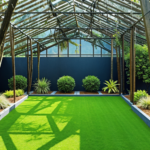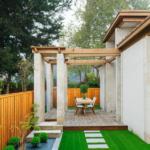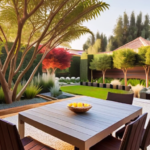Navy blue flowers are beautiful color of flowers that you can add app to your garden or houseplants.
Whether you are a keen gardener, an experienced horticulturist, or simply enjoy the challenge of finding something new, exploring the natural world is always a rich and rewarding way to spend your time.
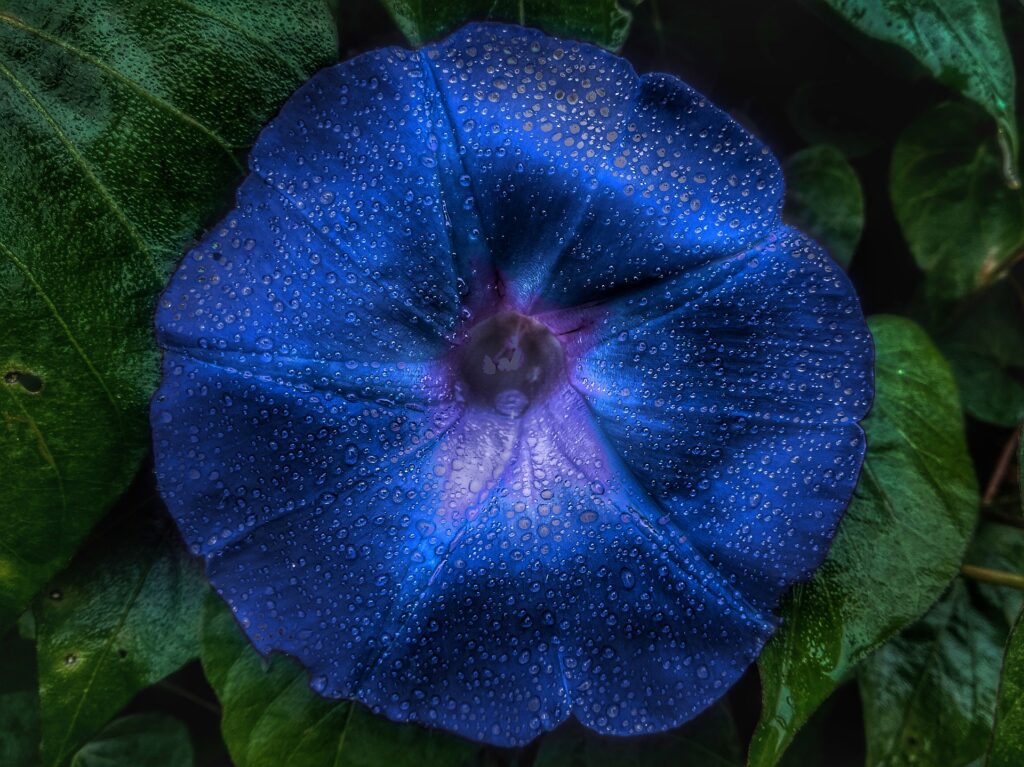
Flowers are a particularly great interest; this is a wide-ranging topic with plenty to discover, and learning about new flowers widens your pool of knowledge.
Navy blue is a color that is too often overlooked when it comes to choosing flowers, and the darker shade can all too often be ignored in favor of brighter, more vibrant blooms.
When you understand just how many flowers come in various tones and shades of rich blue, however, you will be spoilt for choice – let’s get started!
Cornflower
Botanical Name: Centaurea Cyanus
While the typical image of cornflower is a brighter blue, this flower can also come in stunning shades of navy and are a great way to add color to your garden.
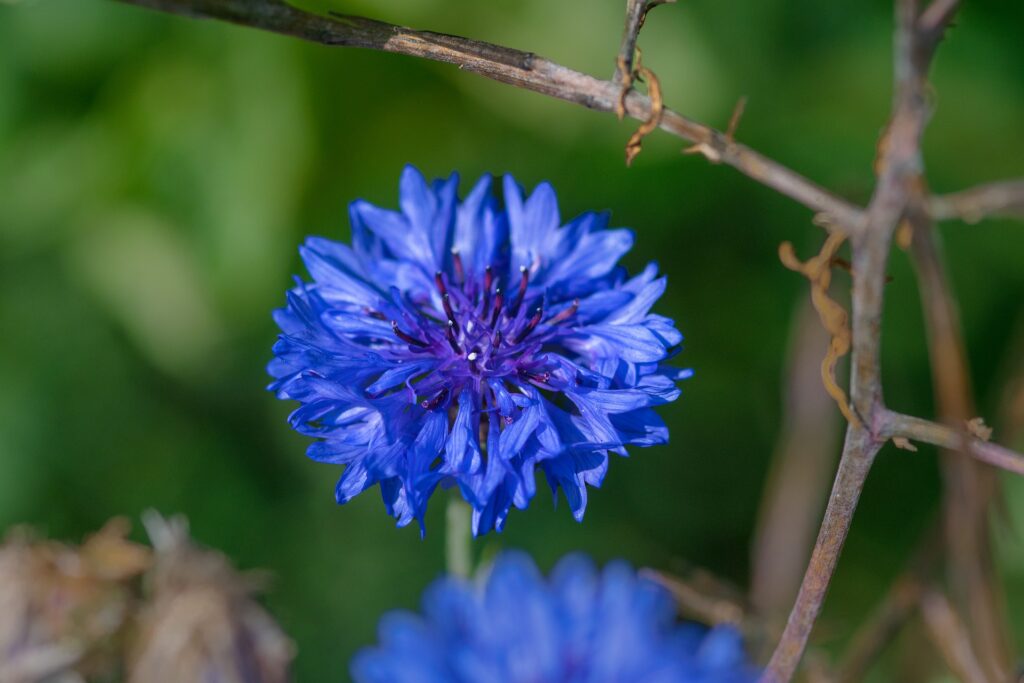
They are also super welcoming for bees and butterflies!
Iris
Botanical Name: Iris
Another gem that blooms in all colors, dark blue Iris flowers really are a stunning addition to any bouquet, floral arrangement, or garden space – and they derive their names from the Greek goddess of rainbows for an extra feel-good factor!
RELATED:
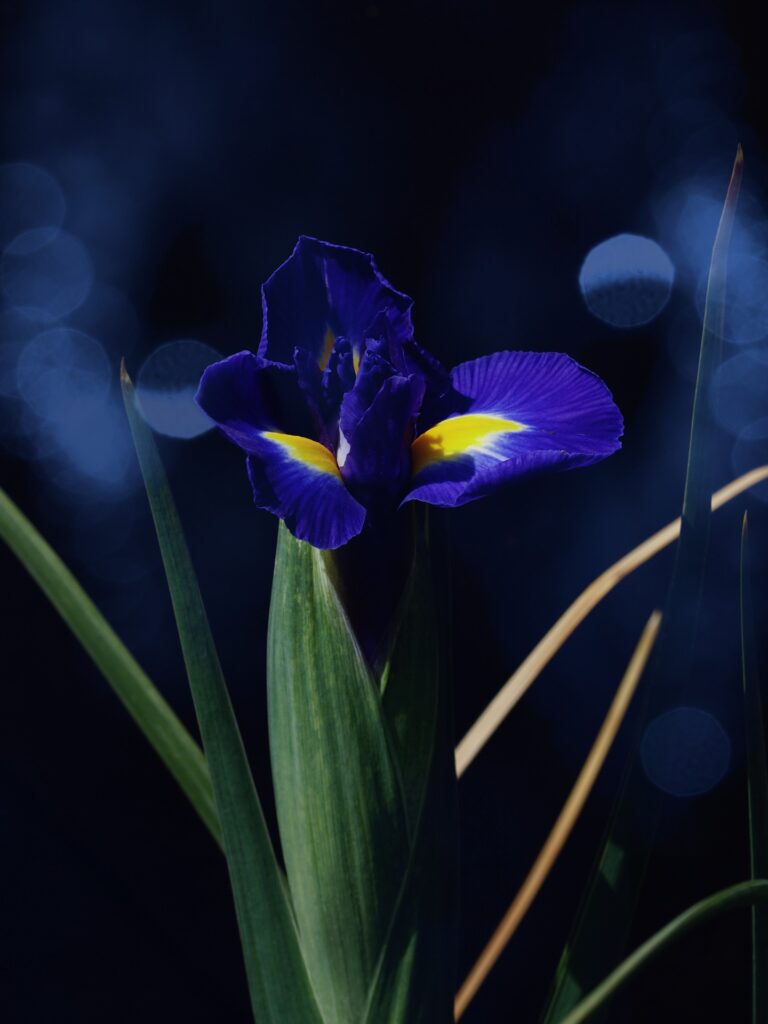
Delphinium
Botanical Name: Delphinium
The tall heights and amazing climbing abilities of the Delphinium flower have earned it a place as a symbol of strong attachment, and they look incredible as part of a gorgeous landscape or garden.
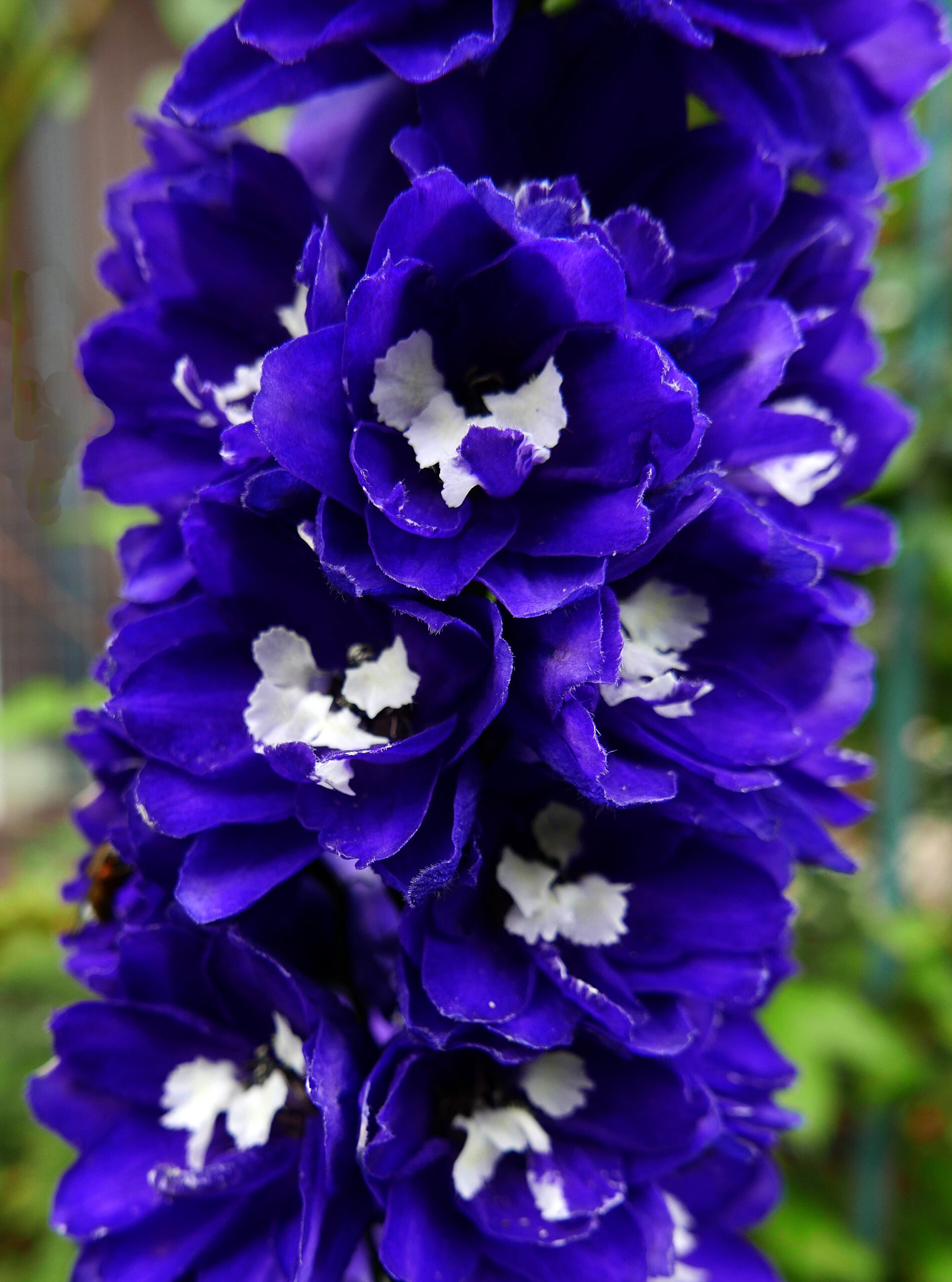
They even look great when grown indoors, but make sure that they have full sunlight for a minimum of half the day.
Blue Star
Botanical Name: Amsonia
Another flower that varies its shades of rich blue is the Amsonia, and these are distinguished by stunning star-shaped blossoms that can form an amazing ground cover within a few short weeks – they are also super easy to take care of!
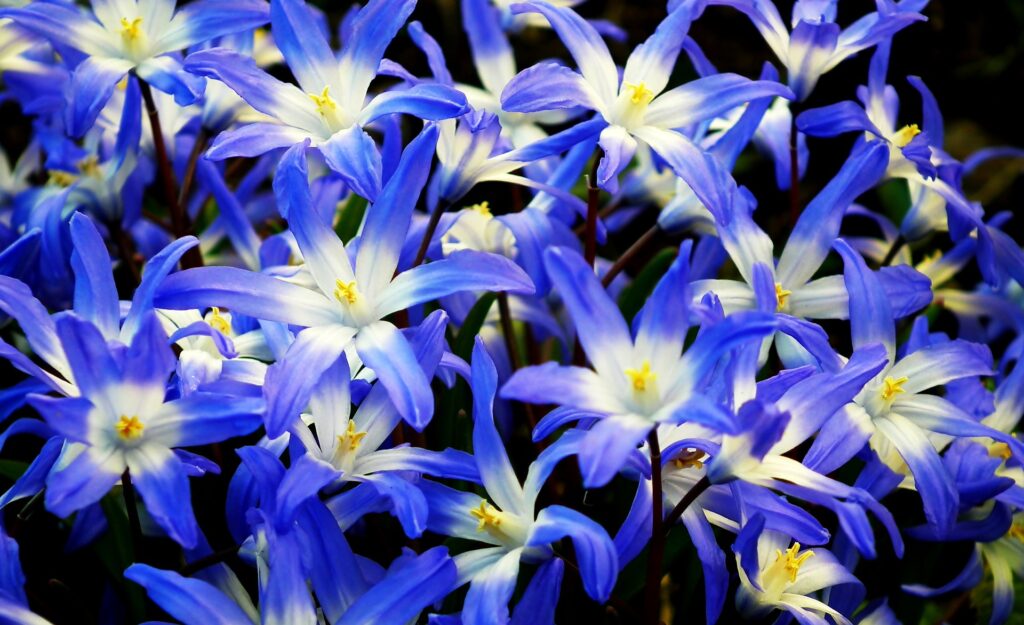
Hydrangea
Botanical Name: Hydrangea Macrophylla
Another common favorite, there are few sights more glorious than a sea of dark blue hydrangeas stretching across the length of your garden – and you can typically enjoy their bloom from the start of spring, right throughout the summer season.
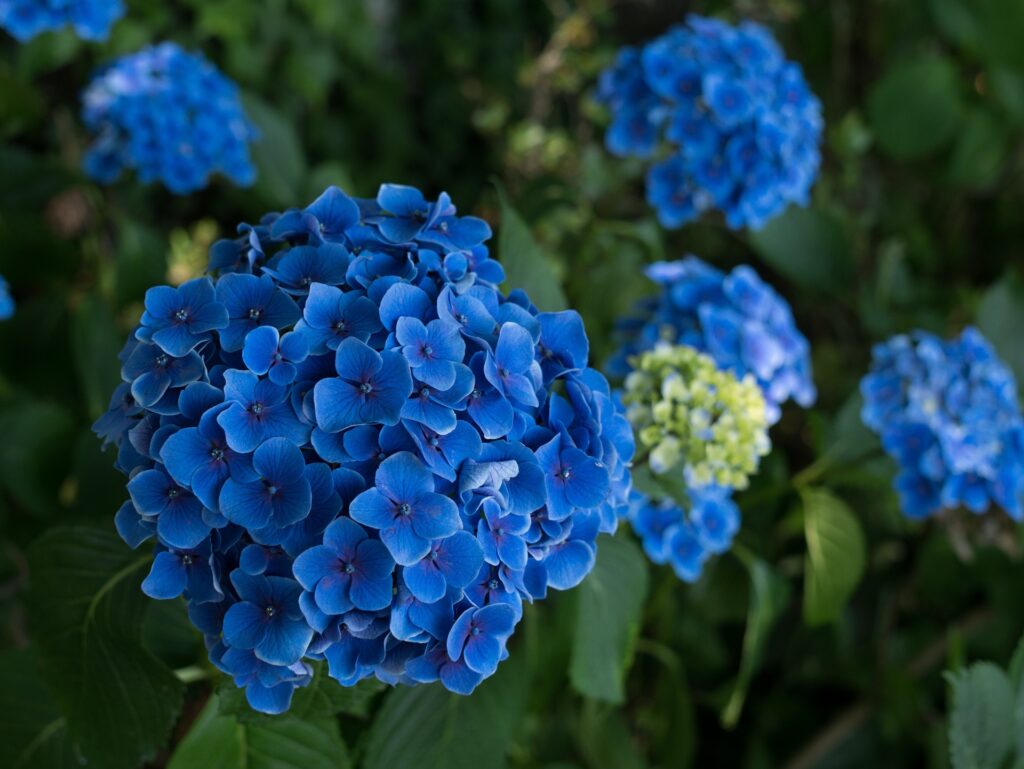
Clematis
Botanical Name: Clematis
Add something special to fences, gates, and doors with a climbing clematis – this is a great way to add a touch of color to an unexpected spot, and works amazingly when paired with different shades for climbing roses and other clematis flowers!
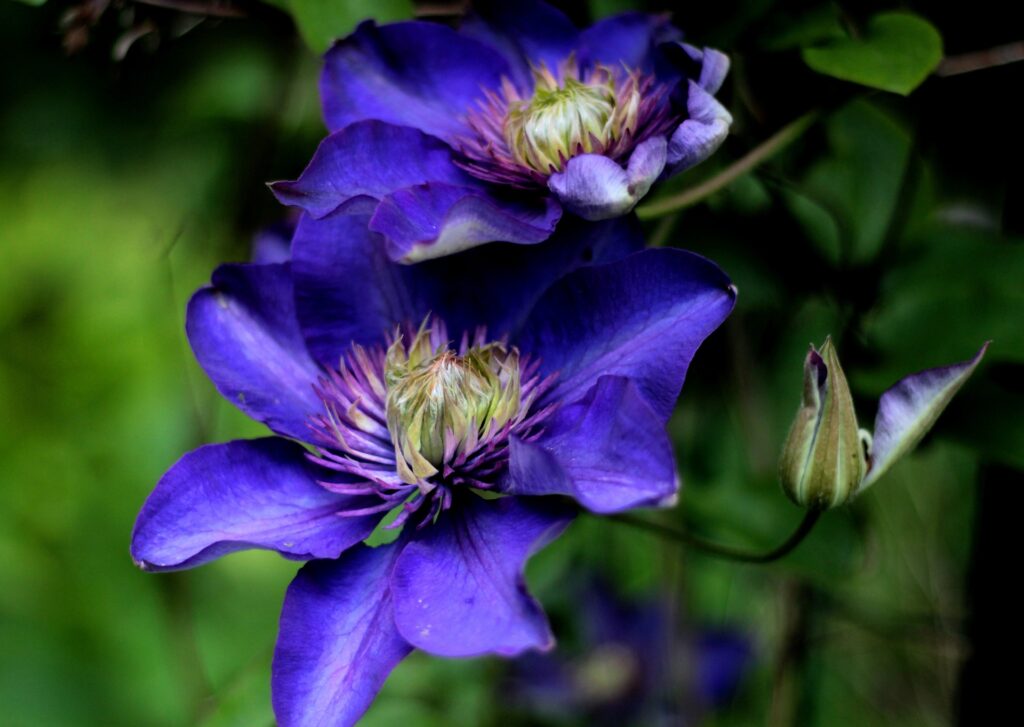
Perennial Geranium
Botanical Name: Geranium Bohemicum
For flowers that bloom often and for a long period of time, it is hard to beat the perennial geranium, and these offer a deep blue hue from June right through to the depths of winter – no matter how low the temperature gets!
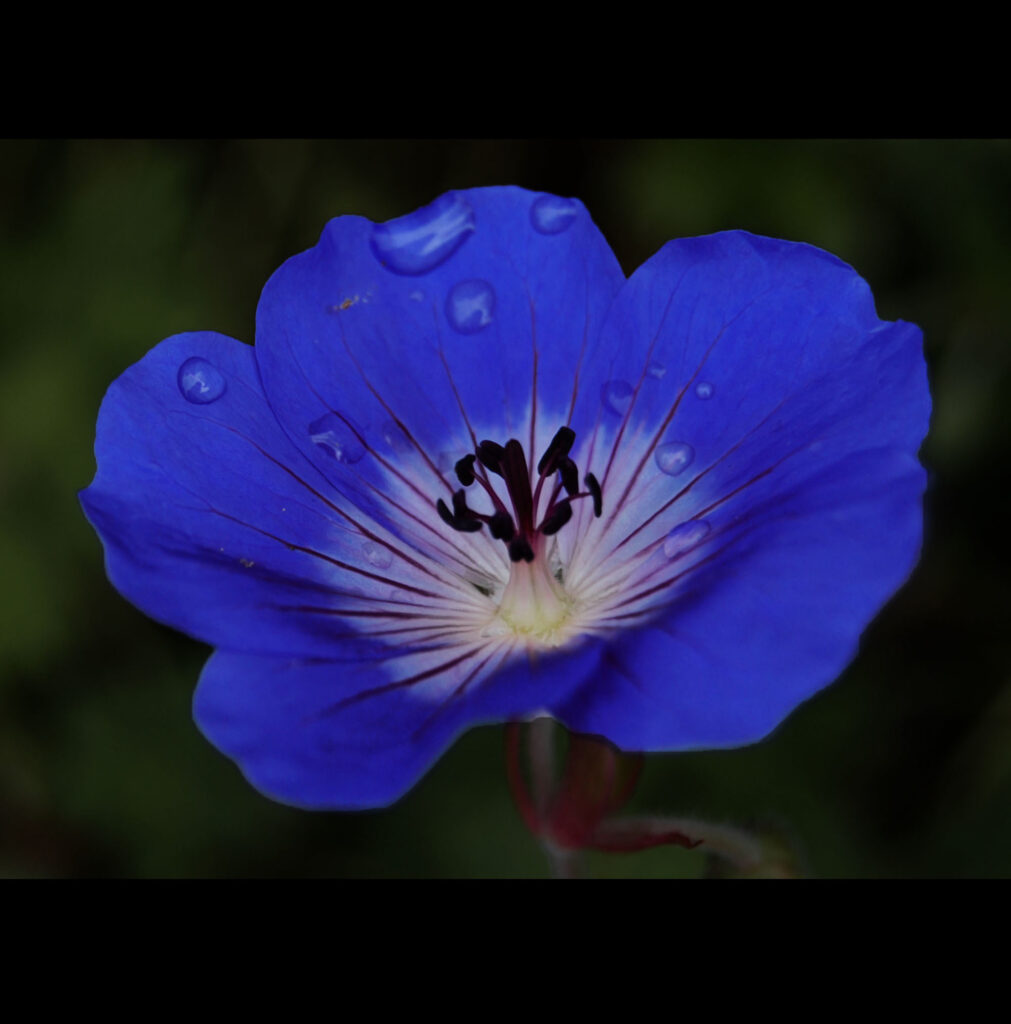
Periwinkle
Botanical Name: Vinca Major
Technically a bush, the periwinkle is an ideal combination of stunning navy blue flowers and an intoxicating scent – ideal for a carpet across your garden or to hide the roots of taller plants. They are also very easy to take care of.
RELATED: 16 Beautiful Periwinkle Flowers (Including Pictures)
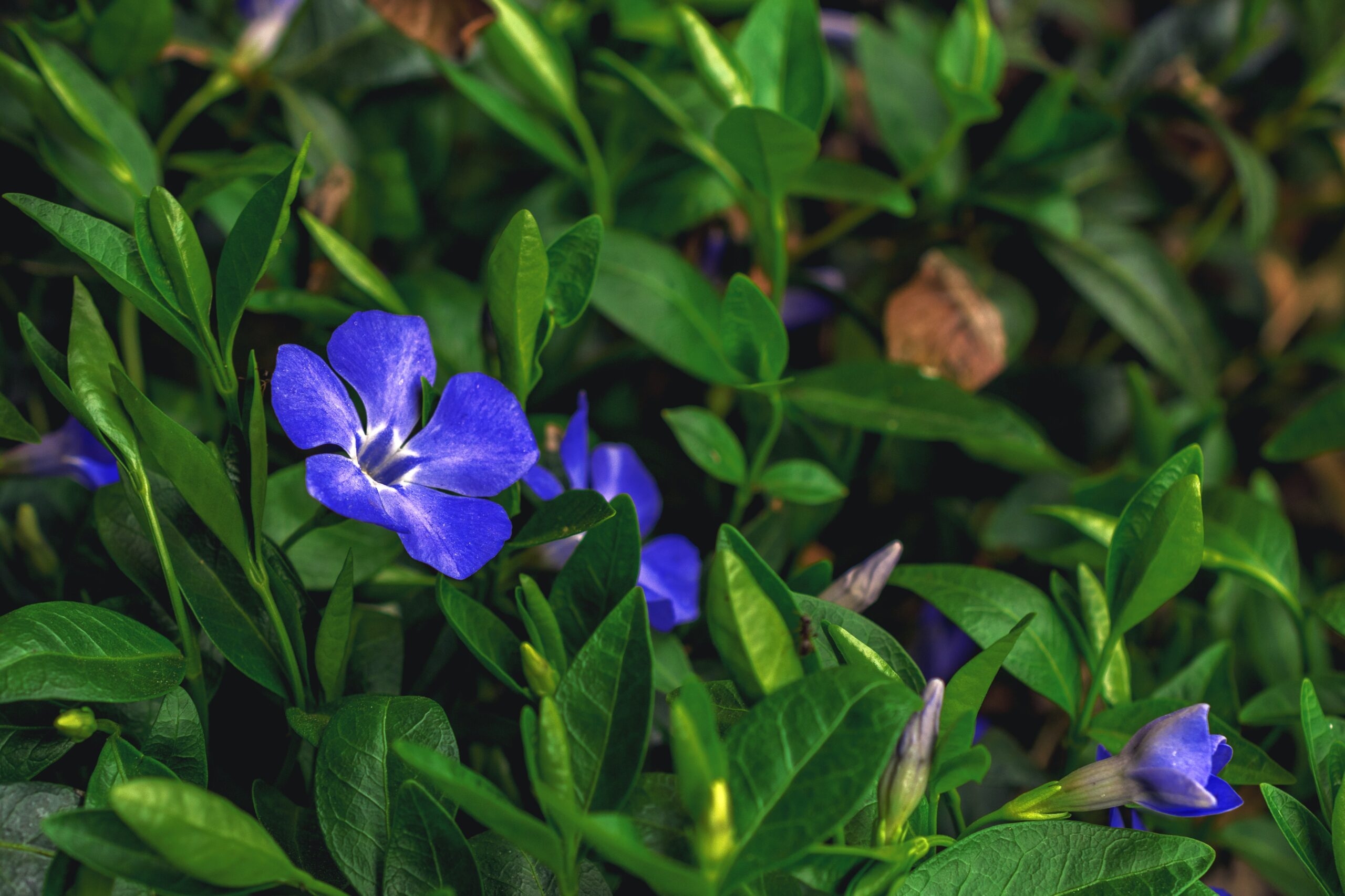
Empire Blue Butterfly Bush
Botanical Name: Buddleja Davidii ‘Empire Blue’
With an incredible scent and stunning blue petals, it is no surprise that butterflies and hummingbirds will be drawn to this treasure trove in your garden.
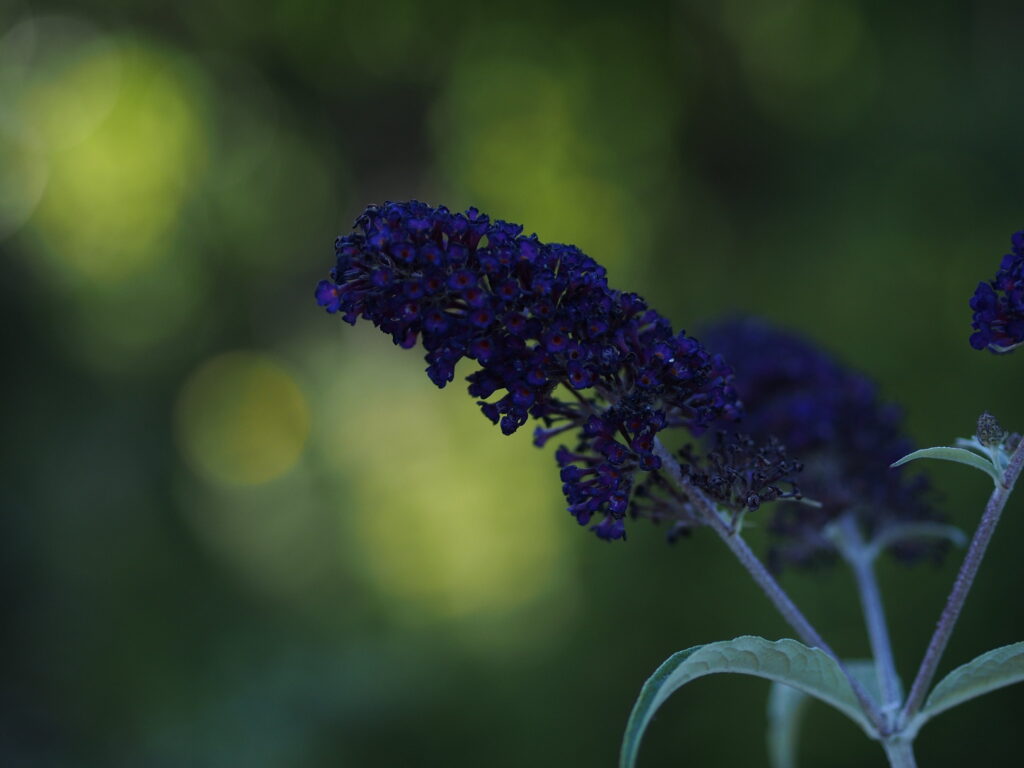
Brunnera
Botanical Name: Brunnera
The distinctive five-petal flowers of Brunnera flood the trees and bushes in the early spring, and can be a sure sign that warmer weather is on the way – what more could you want?
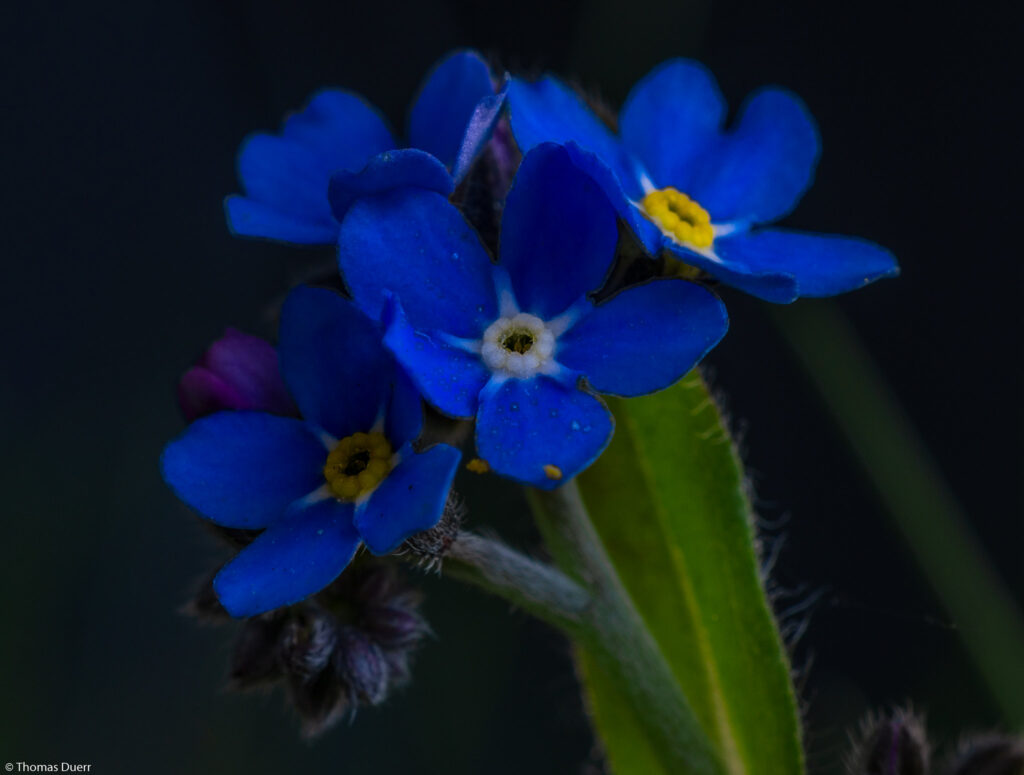
Forget-Me-Not
Botanical Name: Myosotis
According to a fifteenth-century legend, anybody who wore a forget-me-not could ensure that they would never be forgotten by their loved ones, and the name of this distinctive flower was born.
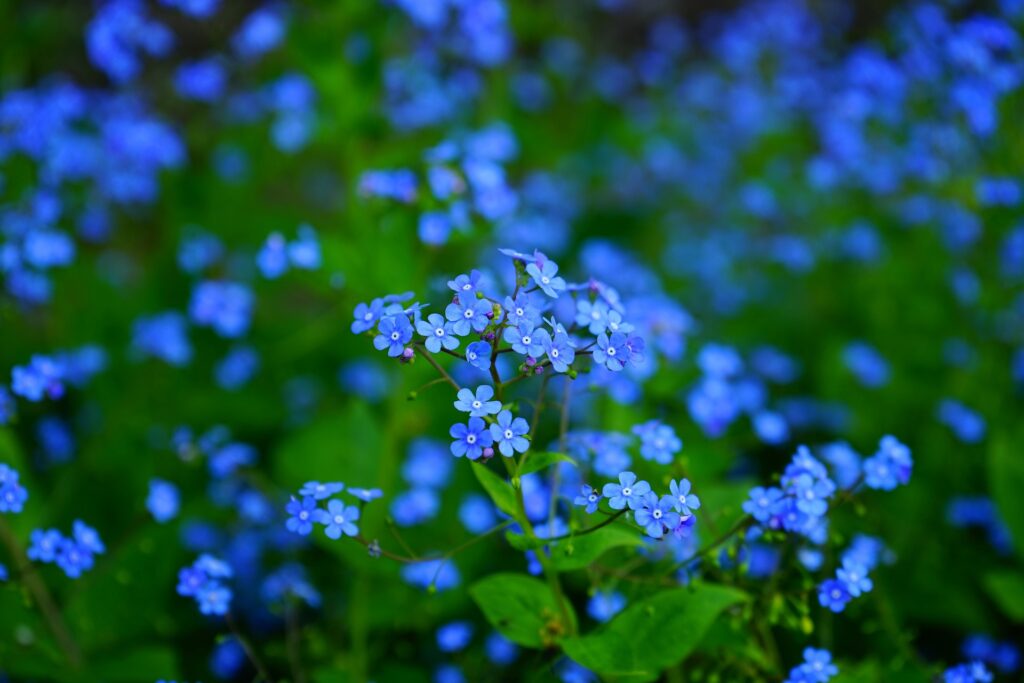
While forget-me-nots are typically a lighter blue, they can also come in a stunning shade of navy to add color to your space.
Gentian
Botanical Name: Gentiana
A symbol of femininity, the Gentian flower is usually found in landscapes and gardens across Europe and is easily distinguished by an unconventional shape and deep blue color.
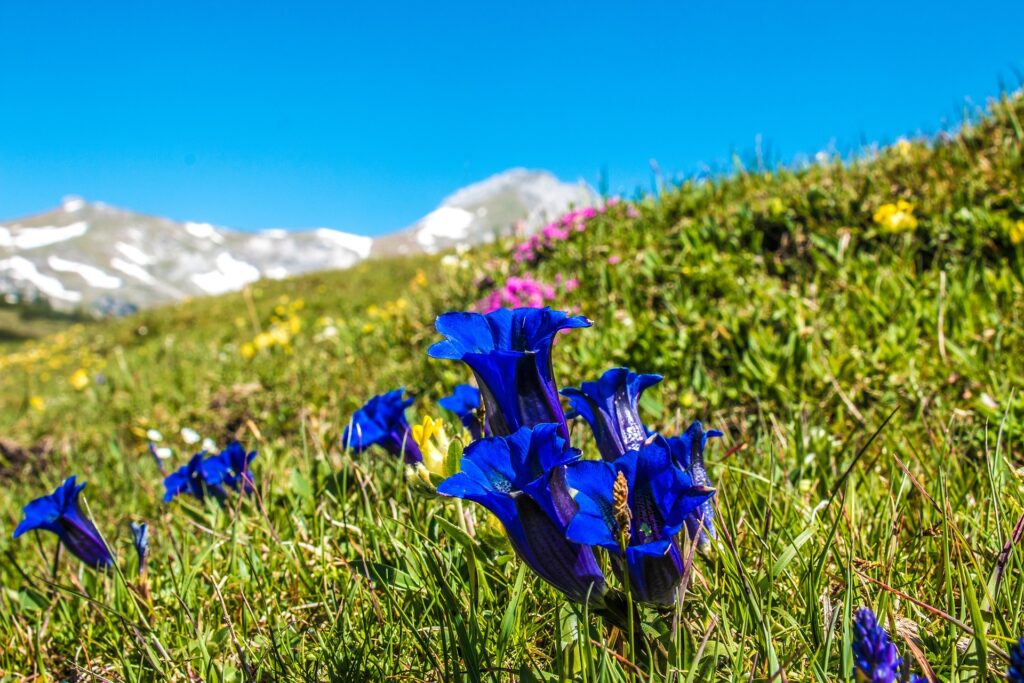
Both hummingbirds and butterflies are also drawn to the stunning petals!
Grape Hyacinth
Botanical Name: Muscari
It is easy to see where the grape hyacinth got its name when we take a look at the small, bell-like flowers!
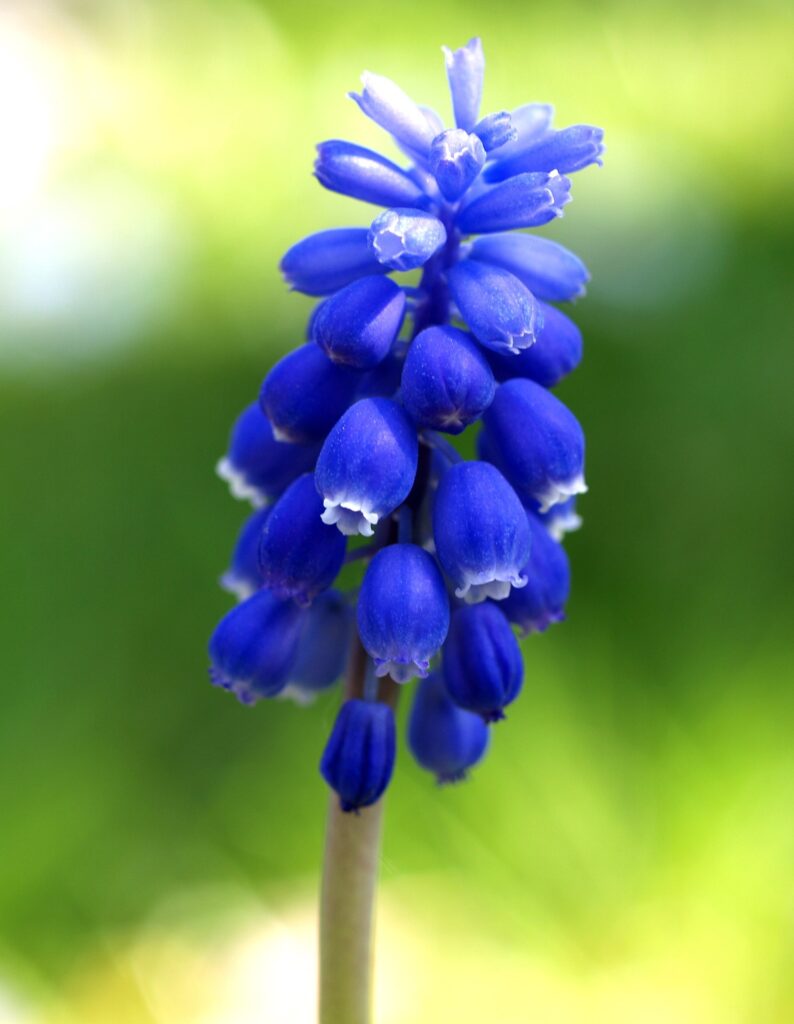
In many cultures, the blooming of the grape hyacinth is an indicator that spring has arrived, and these flowers offer a gorgeous blue addition to the landscape.
Hyacinth
Botanical Name: Hyacinthus
Another gorgeous spring flower, the Hyacinth has been a favorite flower of royals for generations, and they are often seen dotting the gardens of royal palaces and mansions!
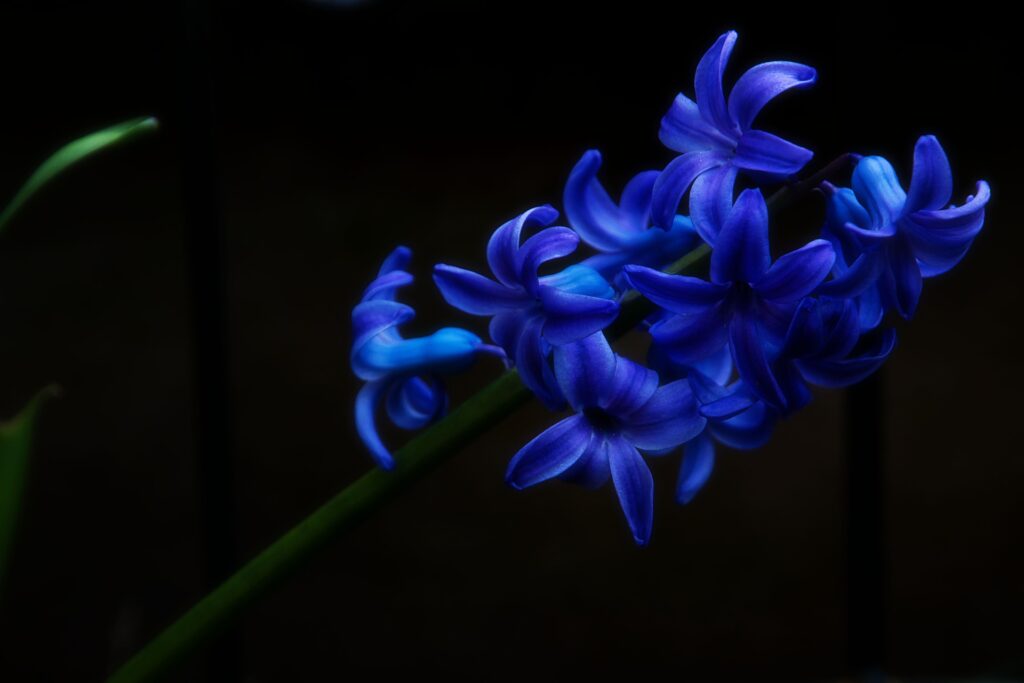
You will identify them from their heady, distinctive scent and delightful navy blue petals.
Wild Sage
Botanical Name: Salvia
Wild sage is a flower that blooms in an array of shades and colors, but the deep blue hues are often considered the most eye-catching as they dot moors and landscapes.
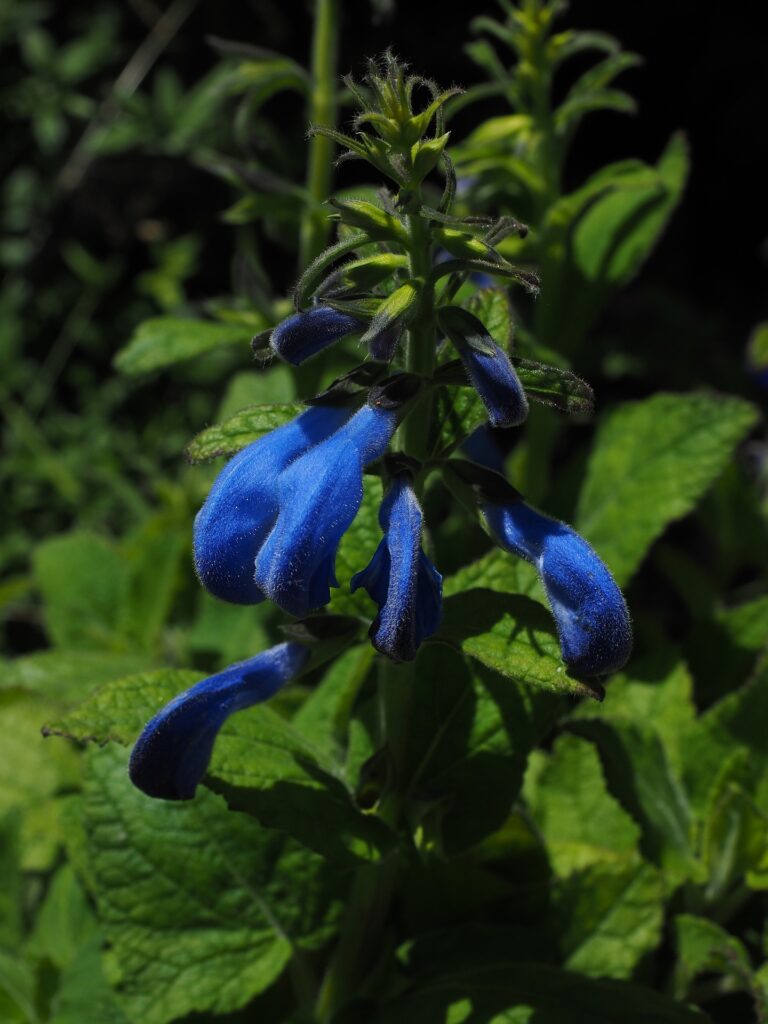
As an added bonus, you can also use the leaves in teas and soups – no part of the plant is wasted!
Passionflower
Botanical Name: Passiflora Incarnata
For something amazingly eye-catching and unique, you cannot beat the curious design of the Passionflower – the ideal central ornament to act as a focal point for your garden.
RELATED: 15 Lovely Tropical Rainforest Flowers (With Pictures)
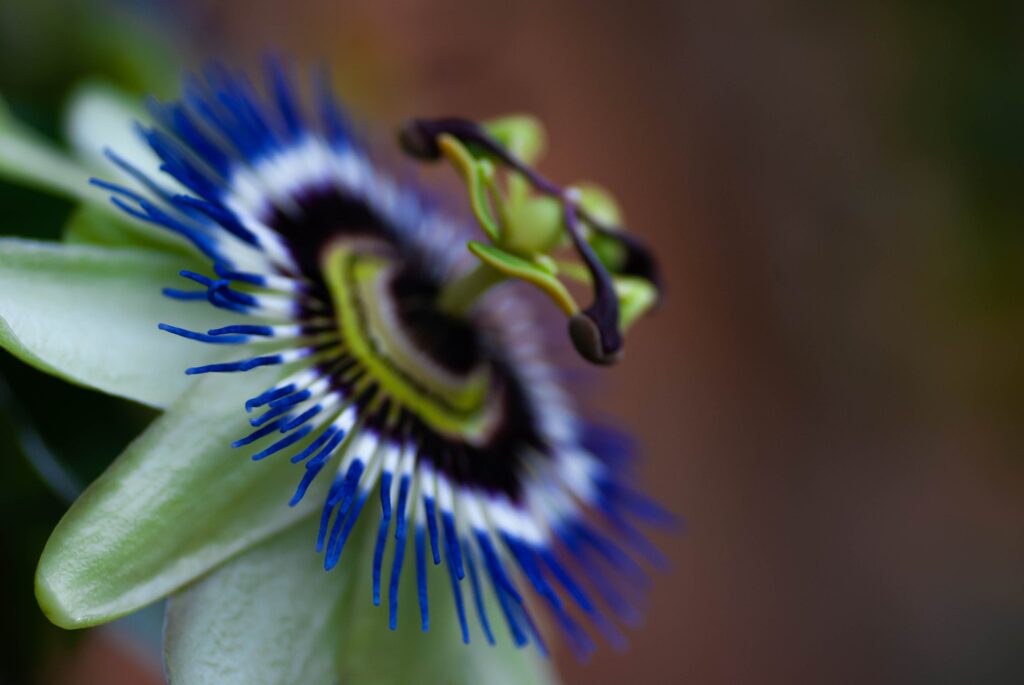
The blue of this flower is truly magnificent.
Bellflower
Botanical Name: Campanula
As the name suggests, this is a flower identified by its small, bell-shaped petals, and is a common sight in interior floral arrangements.
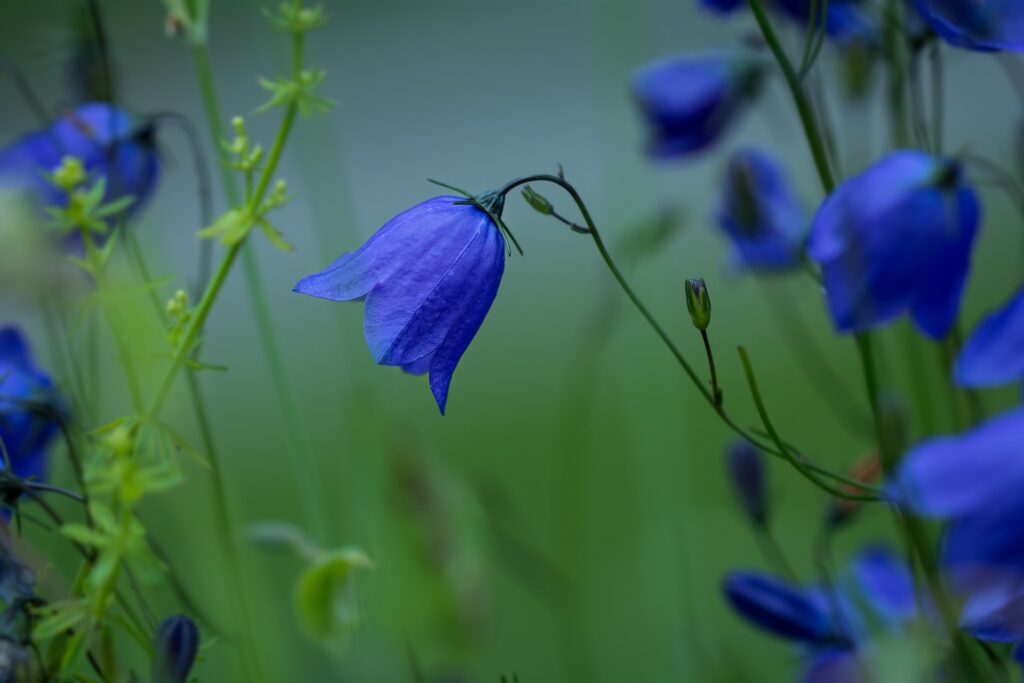
Desert Bluebells
Botanical Name: Phacelia Campanularia
With stunning, distinctive blue petals and bright white stamen, this is an eye-catching flower ready to impress.
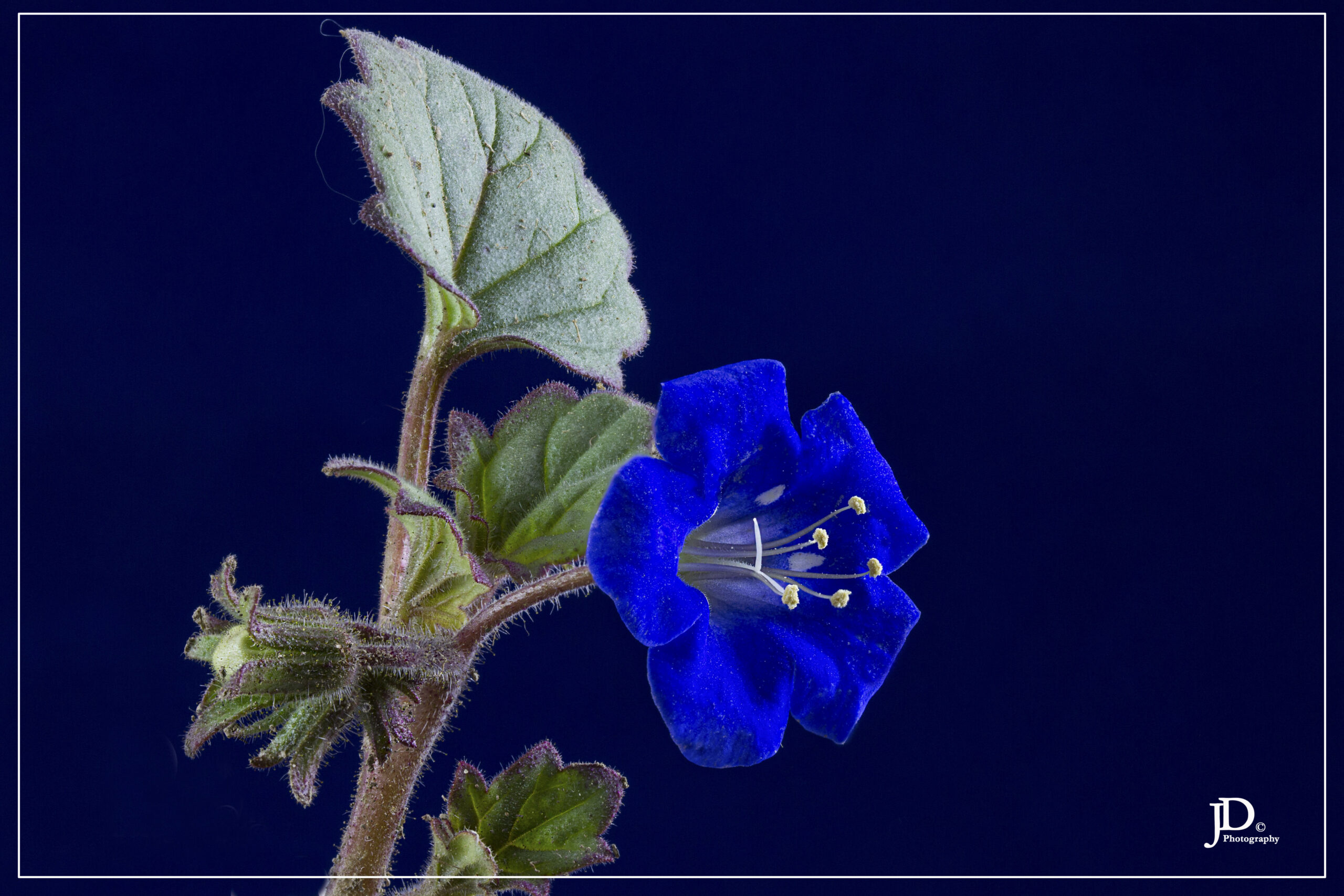
Desert Bluebells survive well in dry, sandy conditions, and are even resistant to drought, making them easy to grow!
Stiff Blue-Eyed Grass
Botanical Name: Sisyrinchium Bermudiana
Despite the name, Stiff Blue-Eyed Grass is actually a flower and bears delicate deep blue blossoms on the top of long stems.
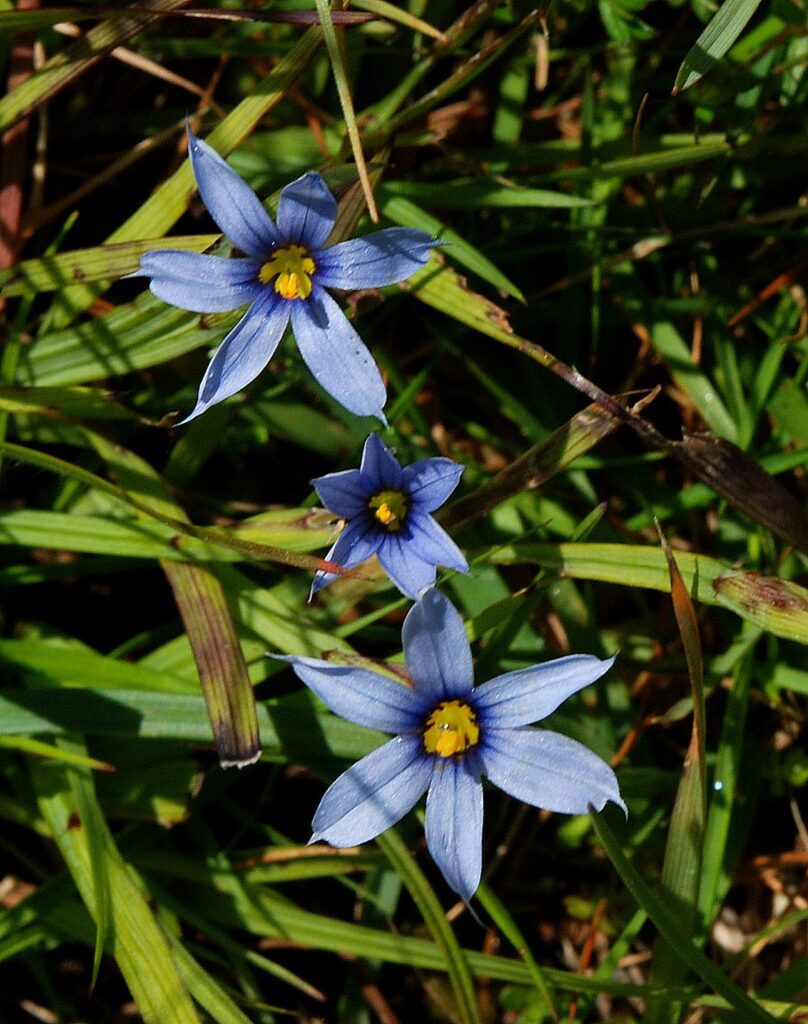
Ideal for butterflies and birds, this is a great way to add wildlife to your garden.
Glory-Of-The-Snow
Botanical Name: Chionodoxa Luciliae
For a flower you can enjoy all through the winter, Glory-Of-the-Snow will typically bloom before the snow starts to melt, and will be in full bloom before the spring starts to hit – you can expect a number of gorgeous flowers from your seeds!
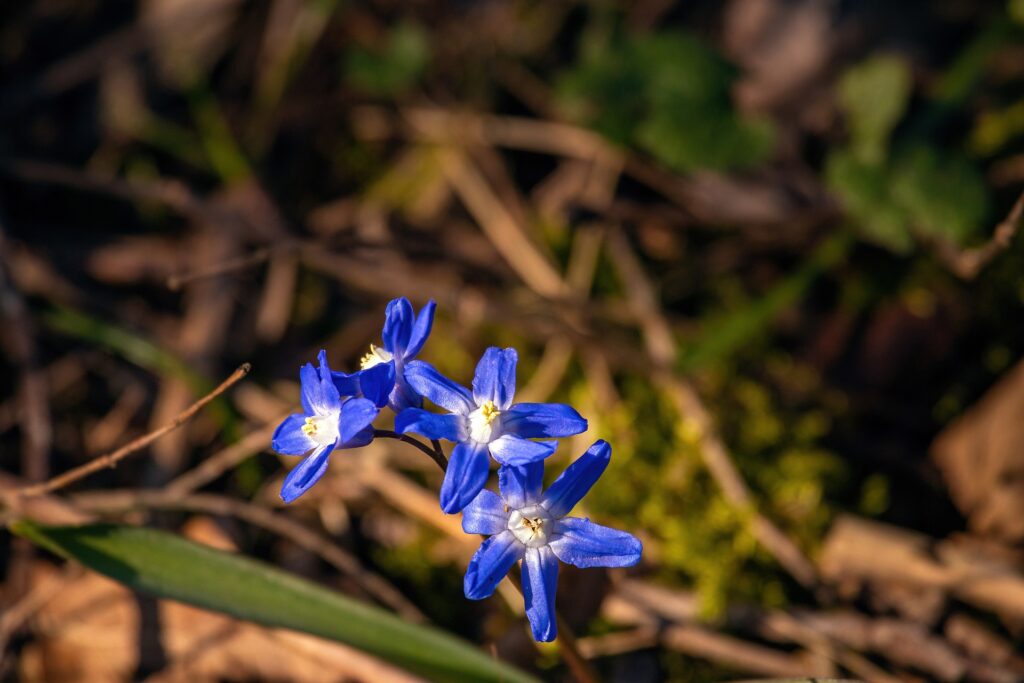
Oxford Blue
Botanical Name: Eryngium Bourgatii
With a similar appearance to a thistle, the Oxford Blue is an unconventional beauty and is distinguished by thin clumps of sharp white leaves, topped with a cone-shaped shower.
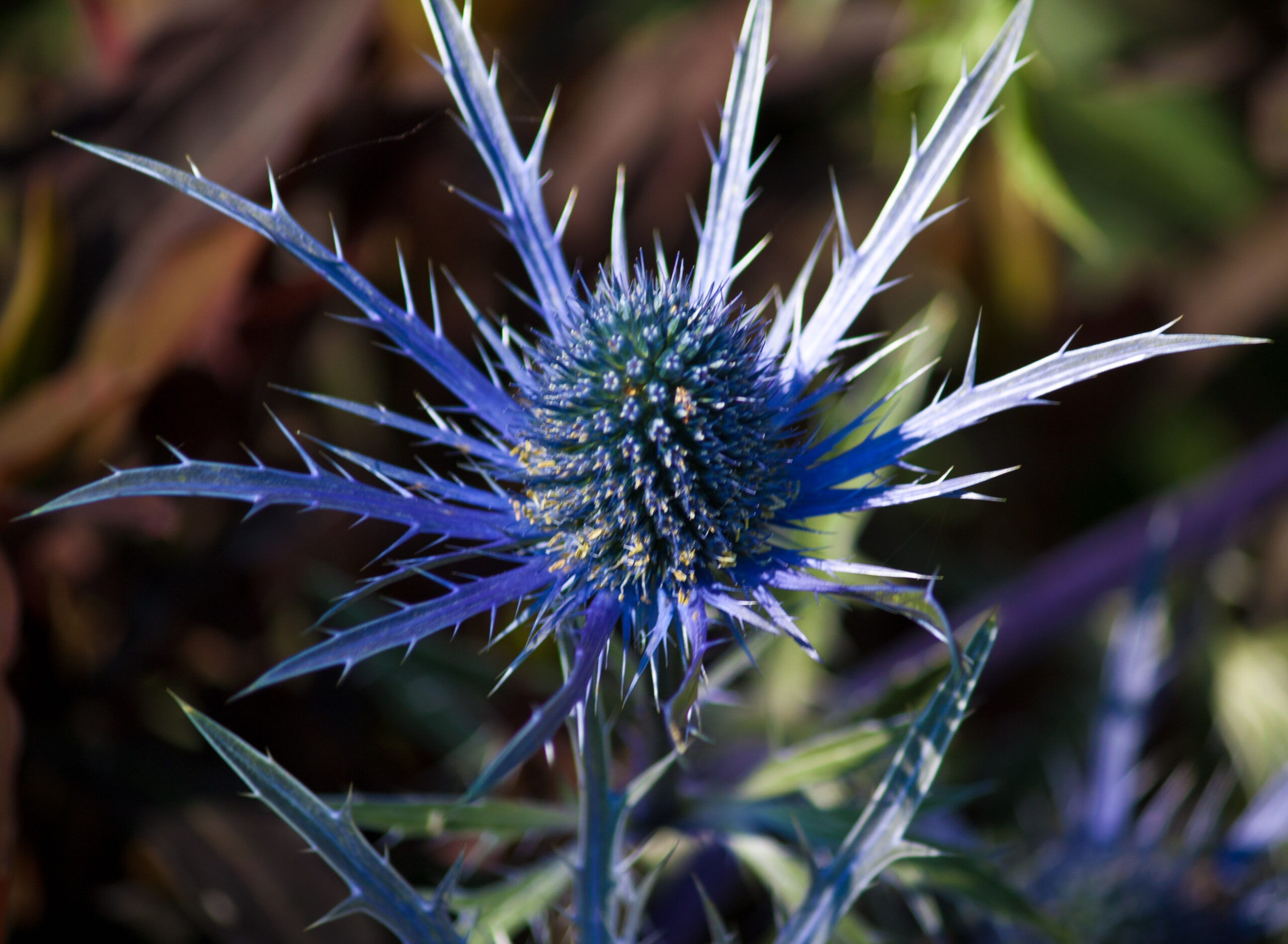
Parts of the plant are poisonous, so avoid it if your garden is shared by pets and children, and take care when touching the flower.
Morning Glory
Botanical Name: Ipomoea
Also known as the dawn flower, this is a stunning blue bloom that comes to life with the first of the sun’s rays and will last for a long time once you have them established.
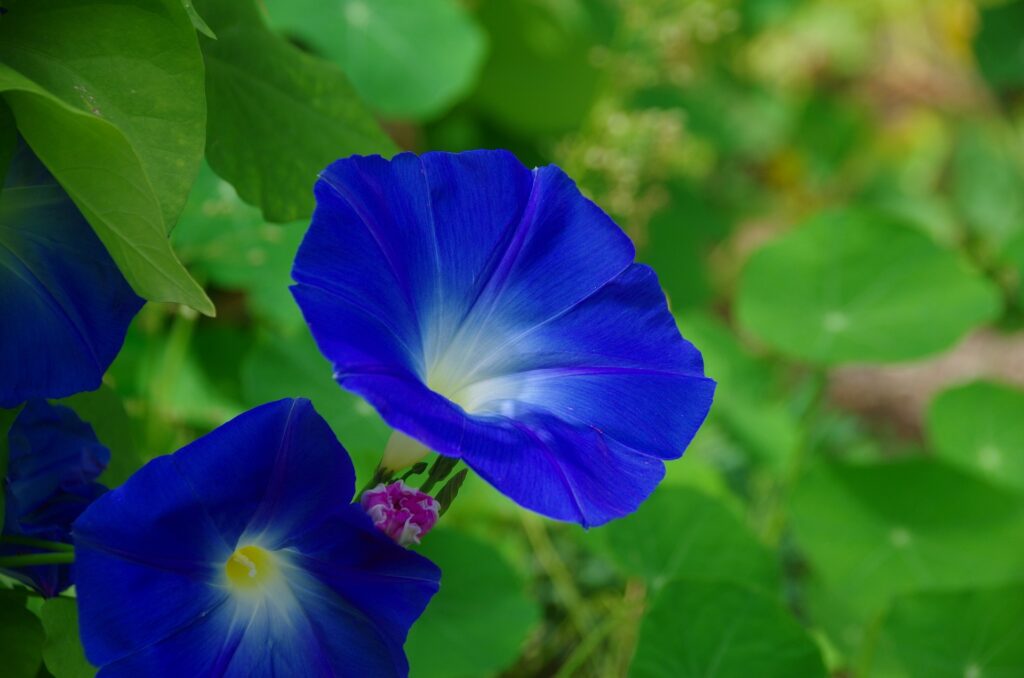
Veronica
Botanical Name: Veronica
Reaching heights of up to three feet, Veronica is a tough, hardy flower that can handle a range of weather conditions and challenges.
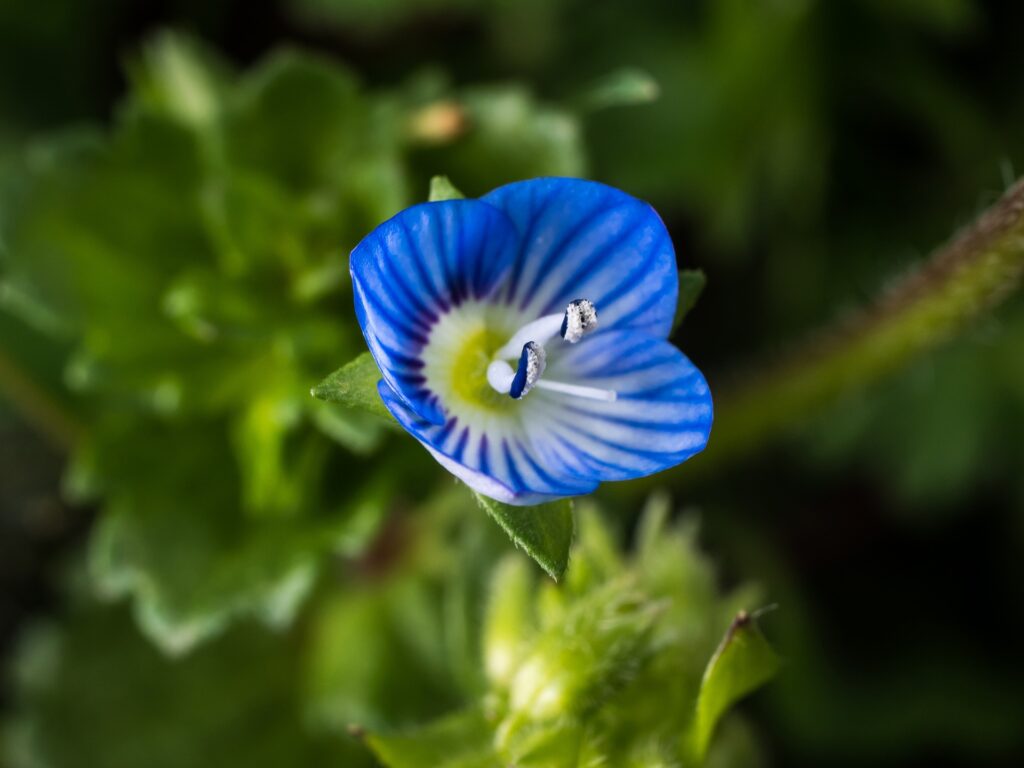
It also blooms all through spring, summer, and autumn, and so is great for enjoying all year round.
Butterflies and hummingbirds will also be regular visitors to your garden with this plant.
Blue False Indigo
Botanical Name: Baptisia Australis
This is a flower that has commonly been involved in the production and making of dye, and it is easy to see why – the strong blue color is vibrant and eye-catching wherever it lands.
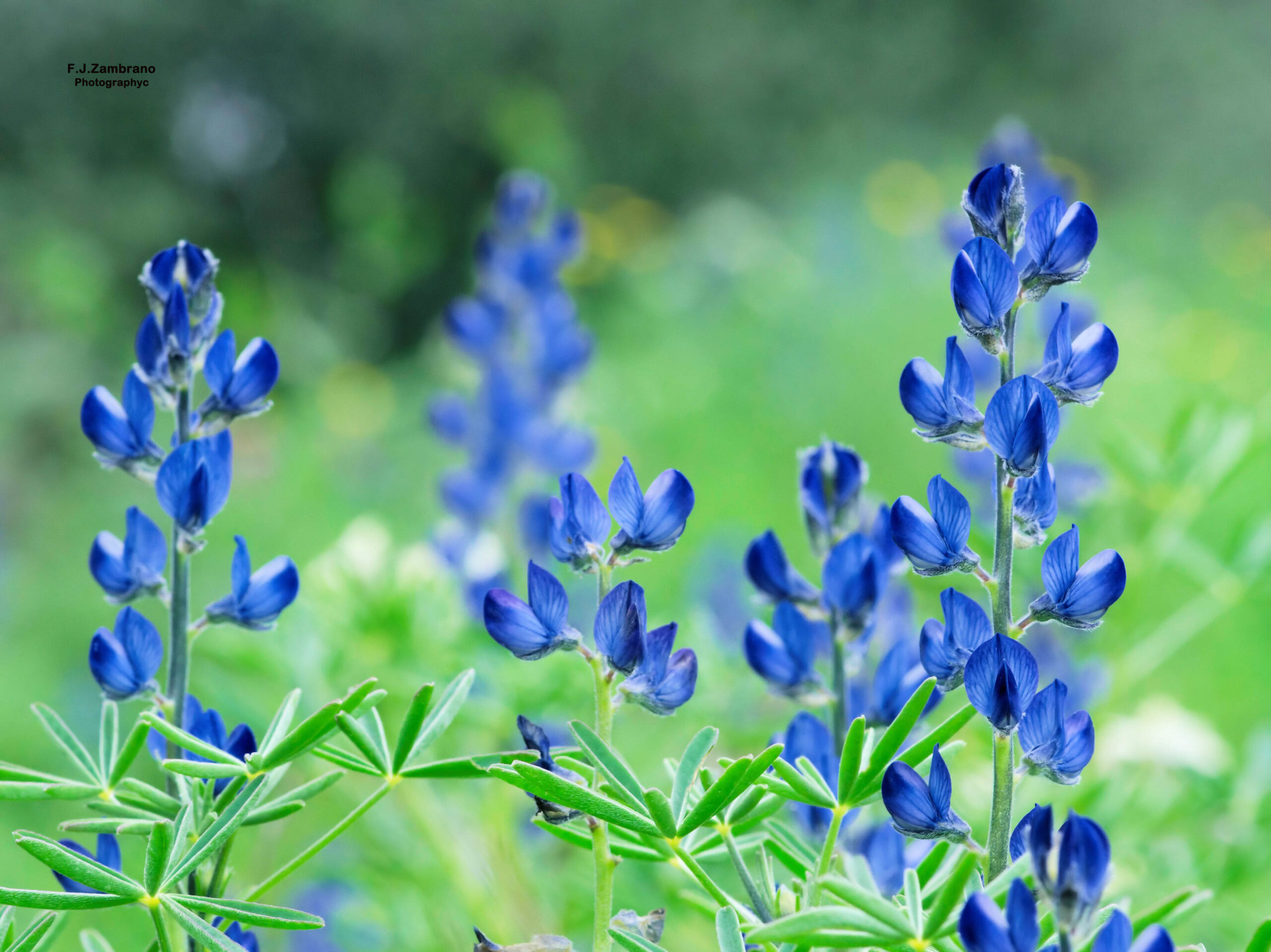
Harvestbells
Botanical Name: Gentiana Saponaria
A low-growing flower, harvest bells make an amazing carpet across the length of your garden, and the scent is incredibly attractive not only to humans but also to birds, butterflies, and bees.
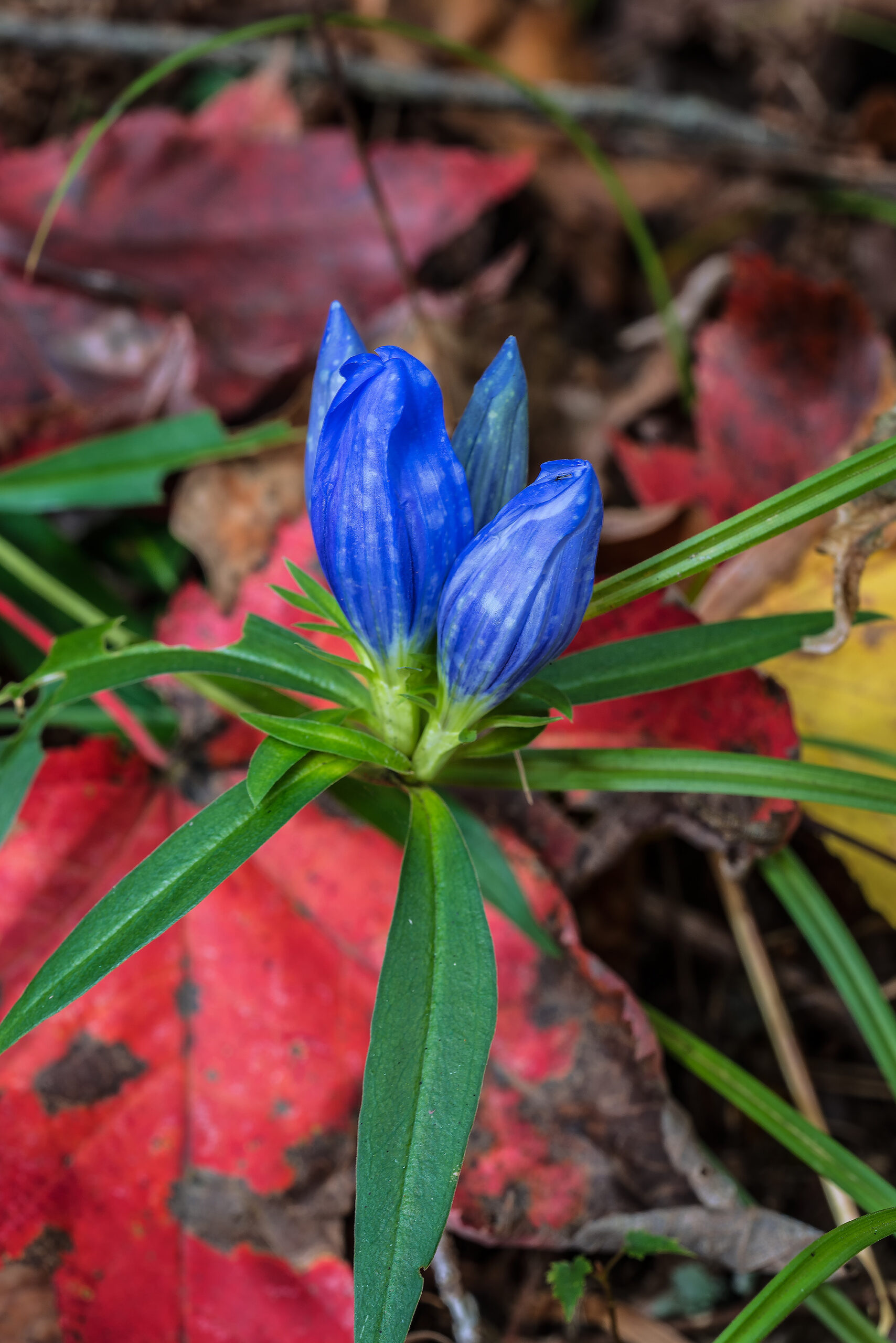
Sweet Pea
Botanical Name: Lathyrus Odoratus
The sweet pea is often named a favorite flower for many fans, and the scent is familiar from its inclusion in a range of quality perfumes.
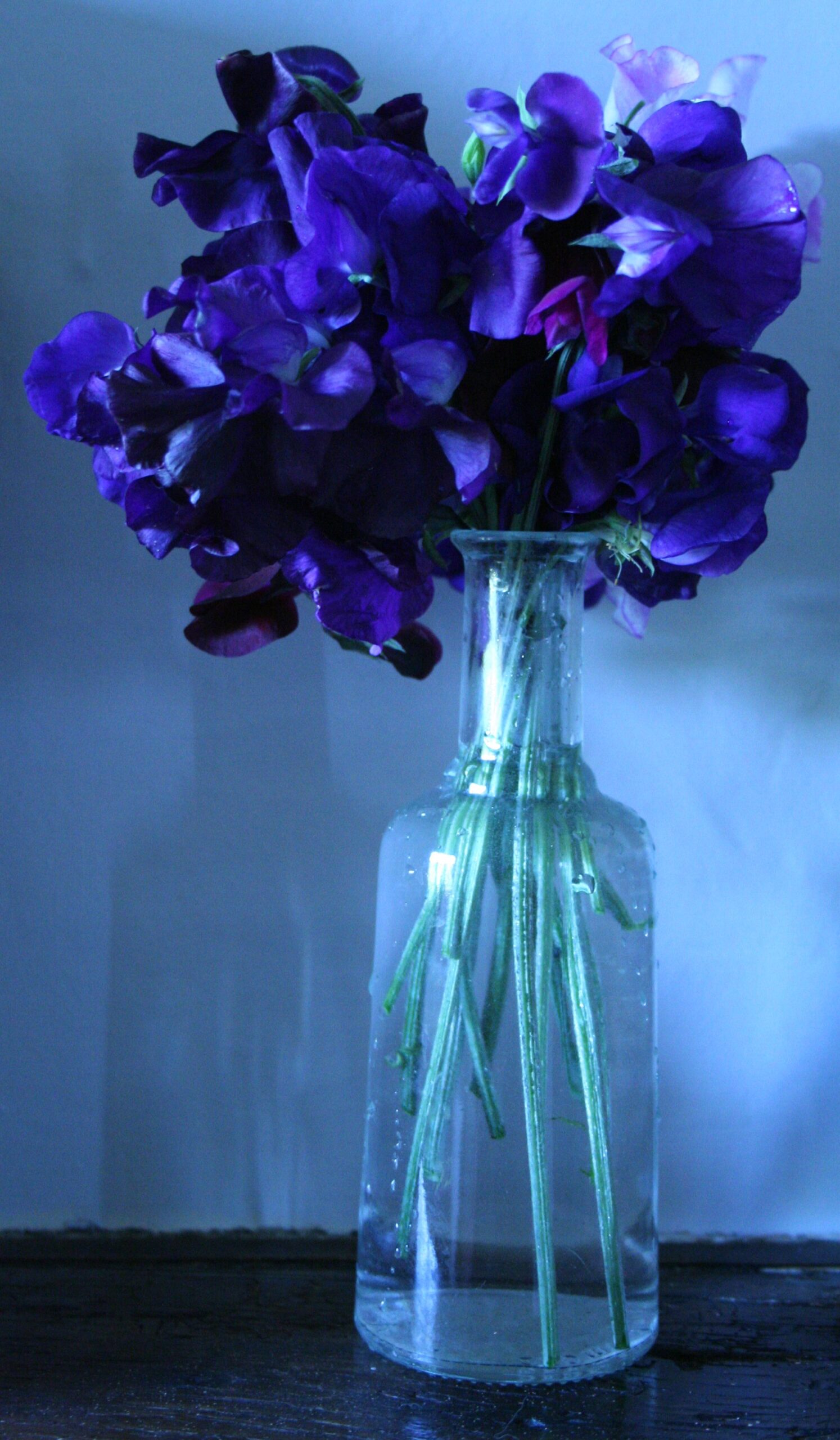
While it can be tricky to get started with growing sweet peas, they are tough once they have been planted, and will last you for many seasons to come.
Blue Mist Shrub
Botanical Name: Caryopteris
When this flower blooms in the late summer, you can expect to enjoy a stunning mist of navy blue all across your garden – and the sight is simply sensational.
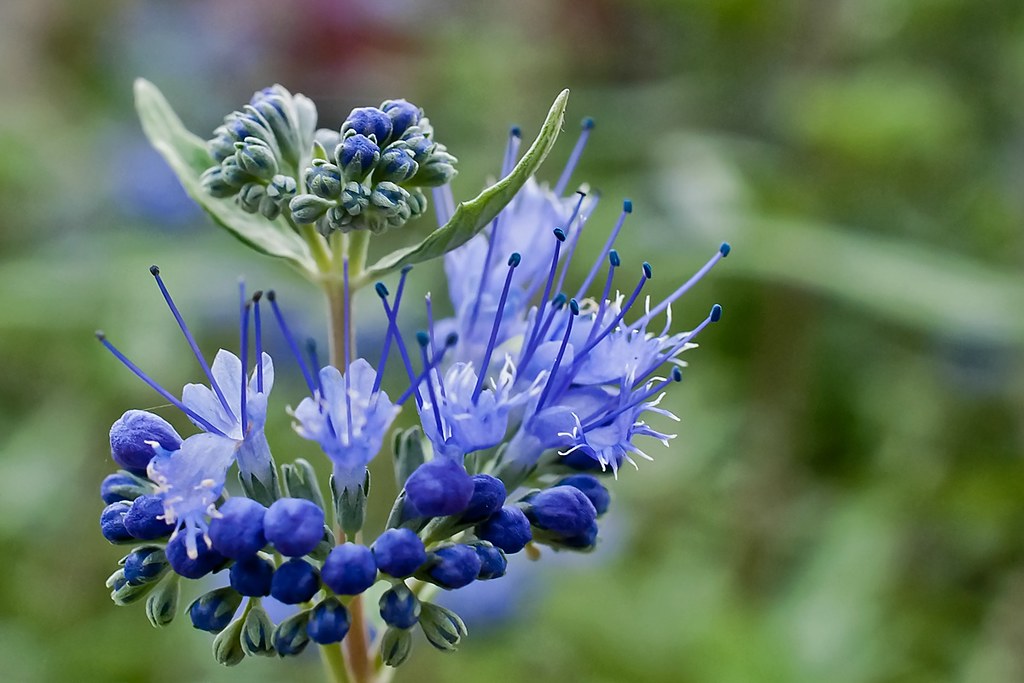
Blue mist is also full of nectar, and so hugely attractive to bees.
Poor Man’s Weatherglass
Botanical Name: Anagallis Arvensis
Poor Man’s Weatherglass comes in a wide range of colors and shades, but the vibrant blue is amongst the most beautiful.
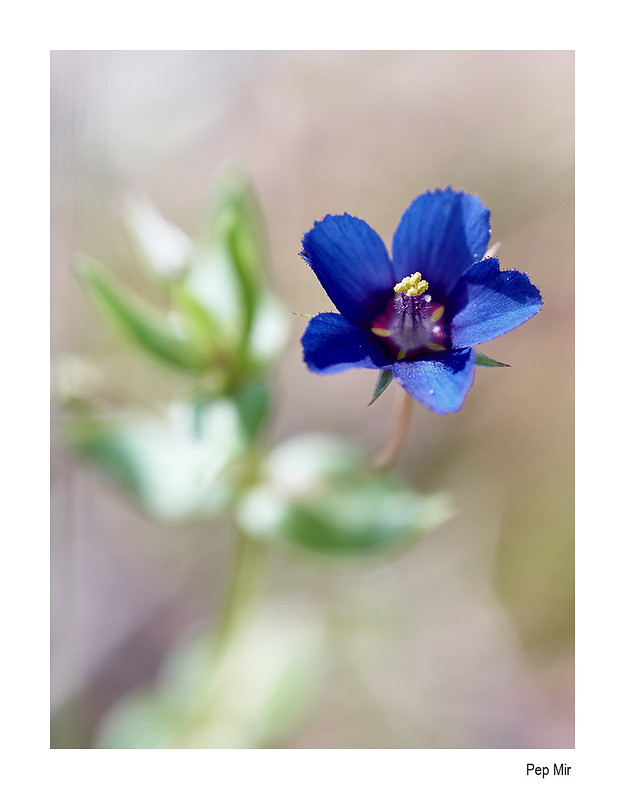
According to legend, this flower blooms when the sunny days are coming, and closes when rain is on its way!
Blue Orchid
Botanical Name: Vanda Coerulea
Orchids are incredible flowers, and when they come in a rich shade of blue, their true beauty emerges. To grow an orchid successfully, you will need to use a blend of bark and charcoal or wood chips.
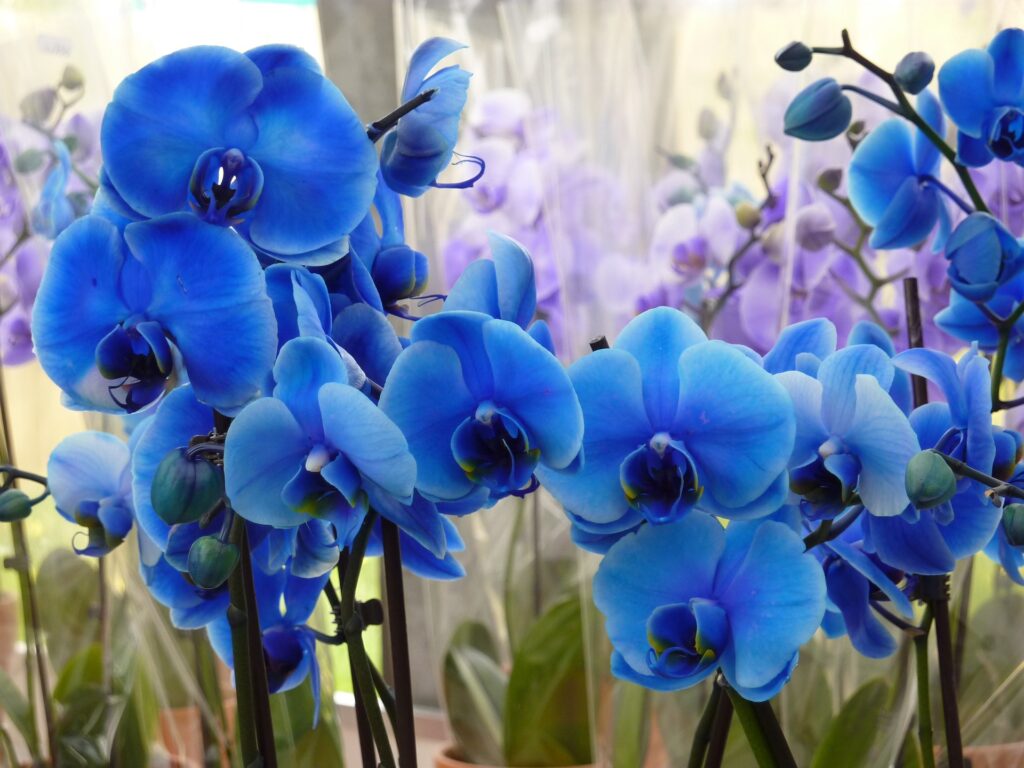
Veronica Georgia Blue
Botanical Name: Veronica Umbrosa
A low-growing flower, this makes an amazing ground cover to protect your spring bulbs – and the blue petals are truly breathtaking.
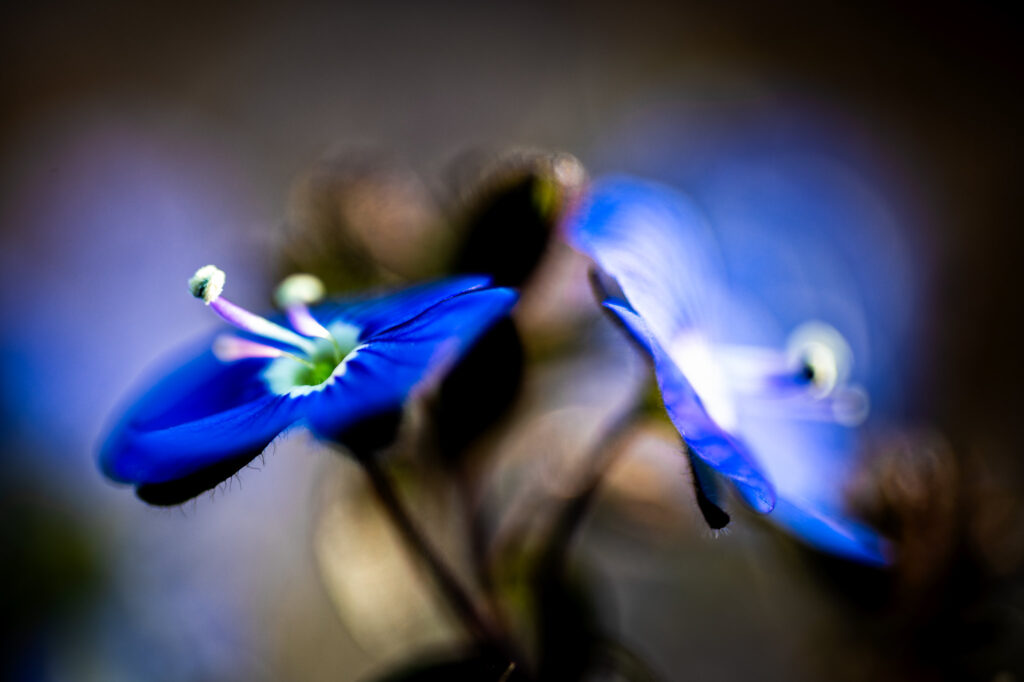
Himalayan Blue Poppy
Botanical Name: Meconopsis Betonicifolia
Blue is the rarest color for a poppy, and that makes these a little extra special.
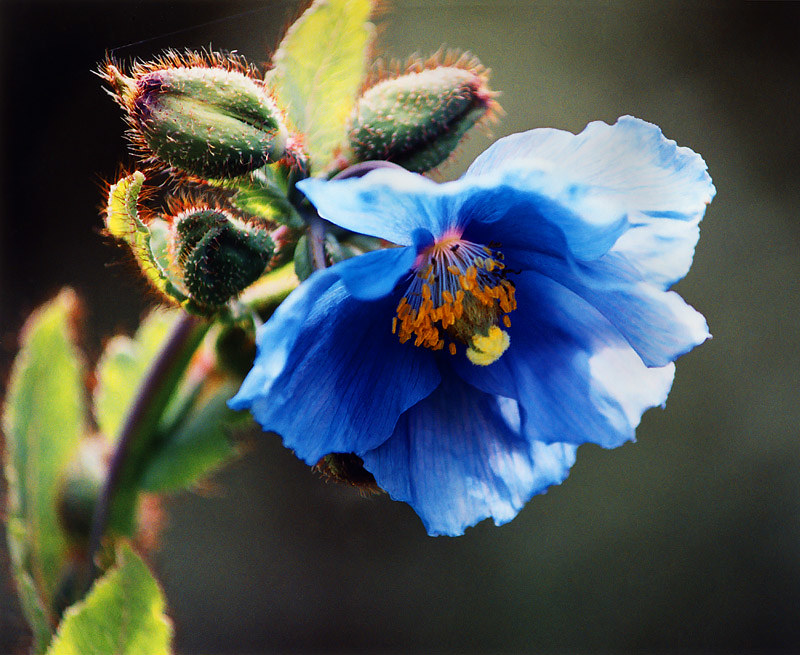
As the name suggests, the Himalayan blue poppy grows largely in Tibet, as well as some areas of the USA, as it has strong preferences for sun, soil, and weather – this is a tricky plant to grow.
Love-In-A-Mist
Botanical Name: Nigella Damascena
An easy-to-grow plant, Love-In-A-Mist will treat you to glorious bright blue blooms and is the ideal antidote after a long, gray winter.
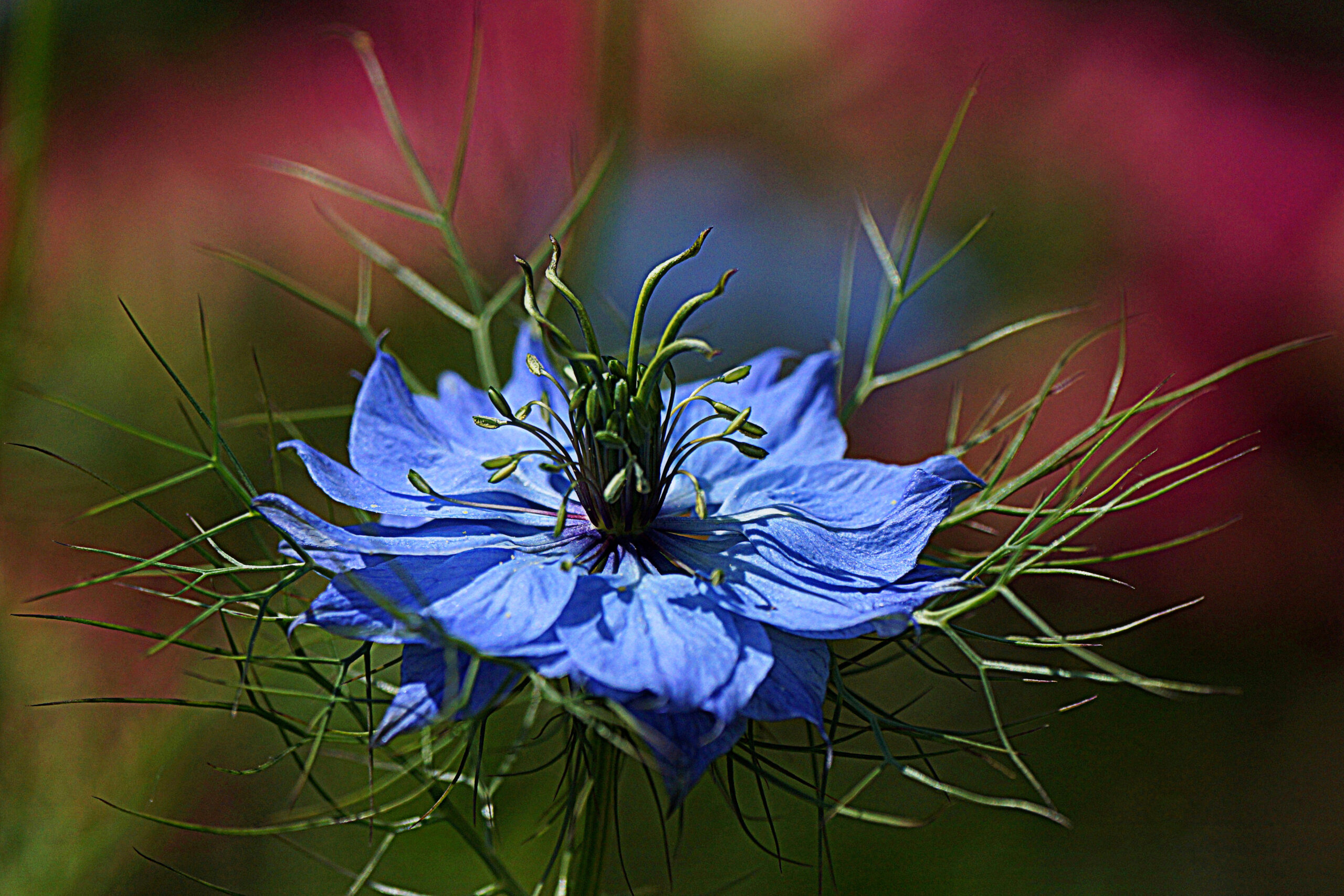
Lungwort
Botanical Name: Pulmonaria Officinalis
Proof that beautiful things can come in tiny packages,
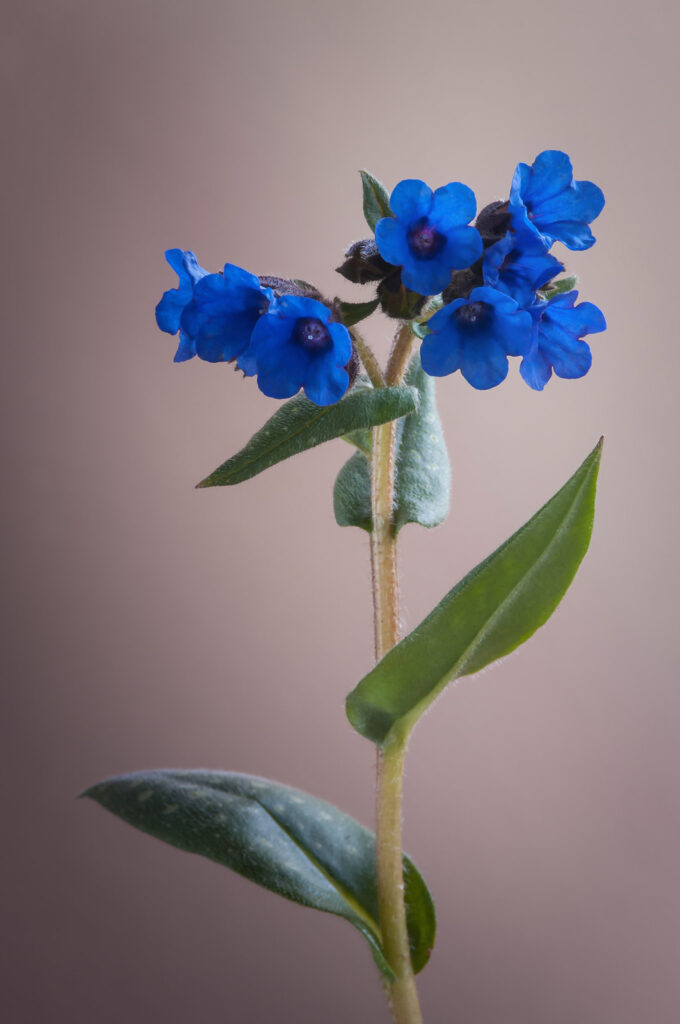
Lungwort is typically seen in forests and woodlands and thrives when covered in wood chips and leaves during its early growth.
Birdbill Dayflower
Botanical Name: Commelina Dianthifolia
With a bloom time that lasts for less than a day, seeing a Birdbill Dayflower is a special experience and one that you should treasure.
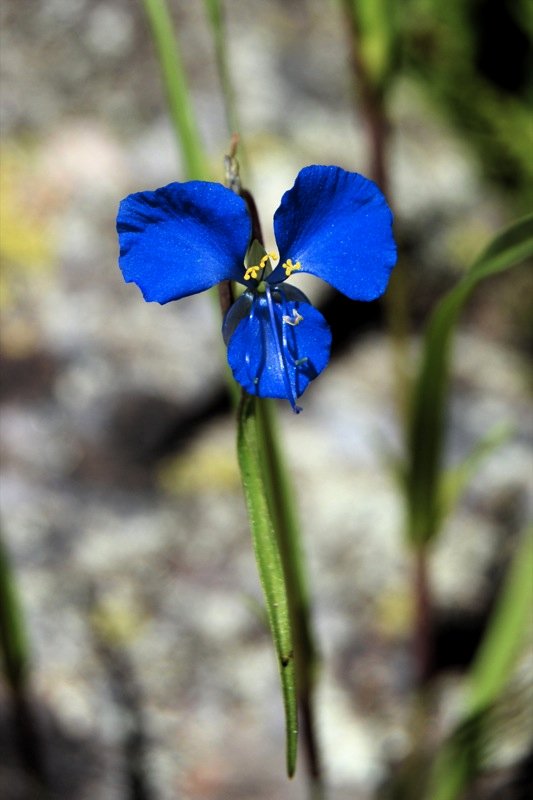
The three small, blue petals per stem are a stunning sight to enjoy.
Siberian Squill
Botanical Name: Scilla Siberica
Named after Siberia, this is a gorgeous plant that rests all winter, and then coats the floor of your garden with a sea of stunning blue.
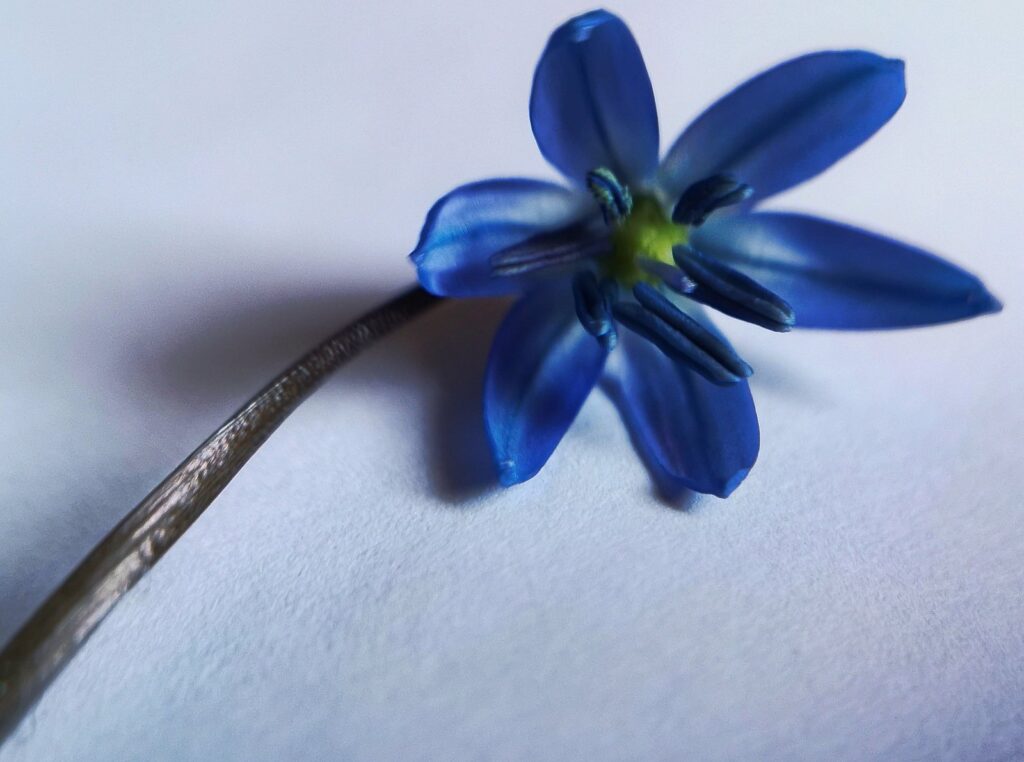
Flax
Botanical Name: Linum Usitatissimum
With a deep, rich blue and stunning gold center, flax will add an amazing pop of color to any garden – and it has the added bonus of being useful for both linseed oil and linen!
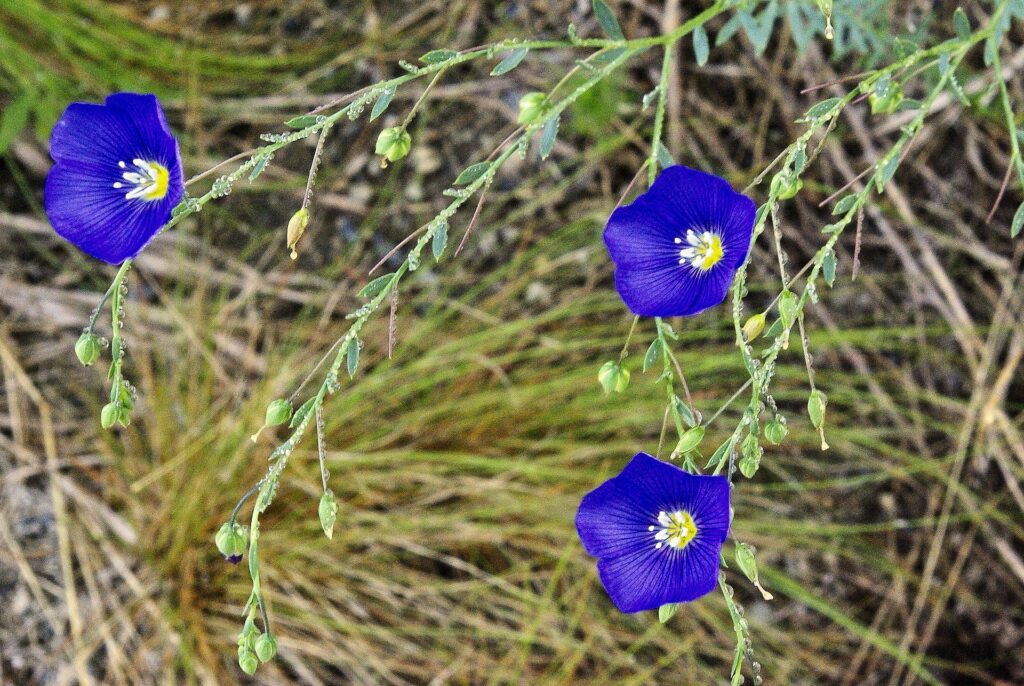
Mountain Larkspur
Botanical Name: Delphinium Glaucum
Mountain Larkspur is one of those stunning flowers that is a perfect combination of being both beautiful and deadly and is often found in deserts or on rocky, remote hills and outcrops.
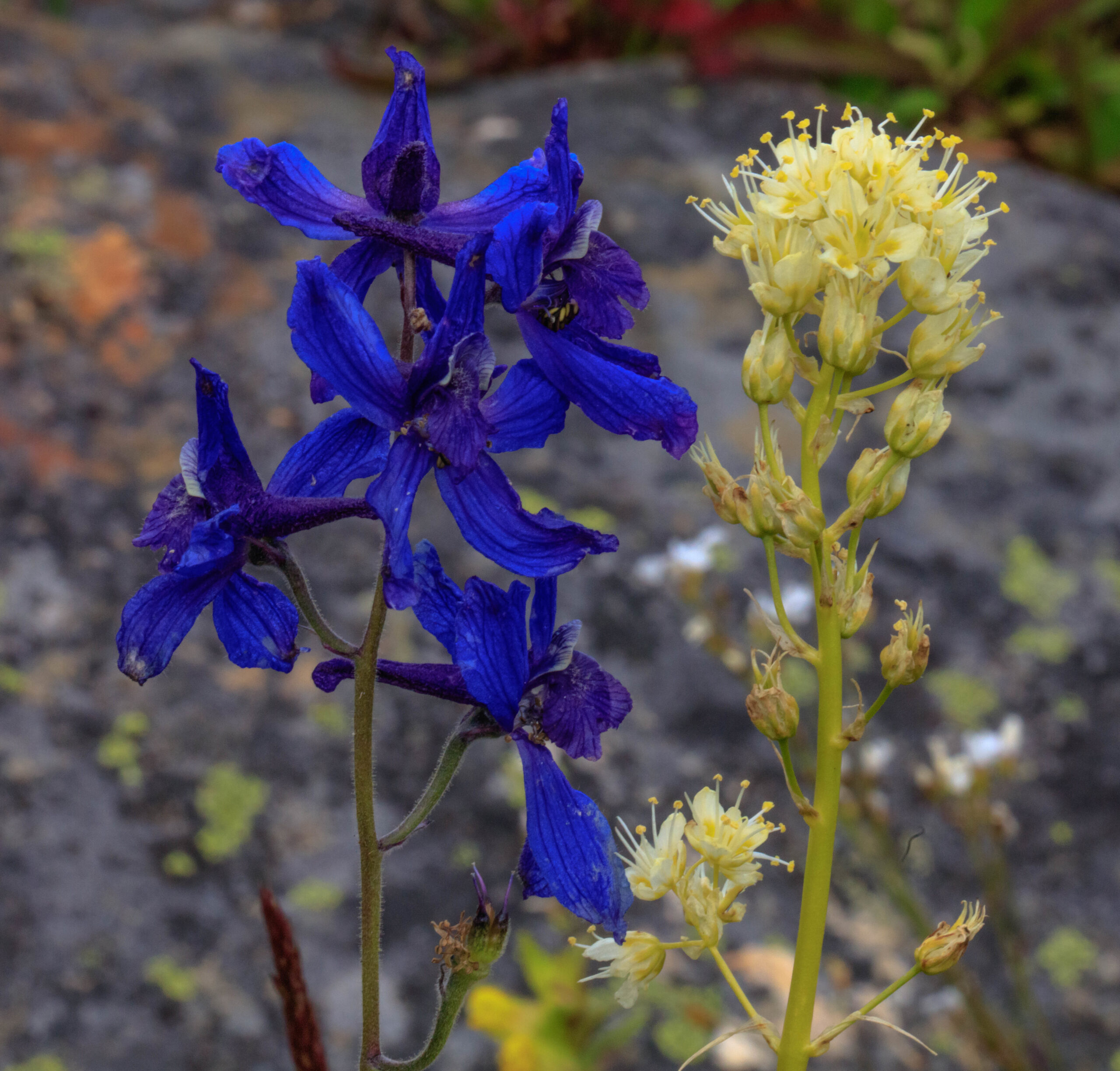
Despite the danger, this is a stunning botanic.
Lily Of The Nile
Botanical Name: Agapanthus
According to Ancient Greek, Agapanthus translates as “the flower of love”, and it is certainly guaranteed to add a romantic air to proceedings thanks to a cluster of stunning blue flowers that thrive in the warm weather and sun.
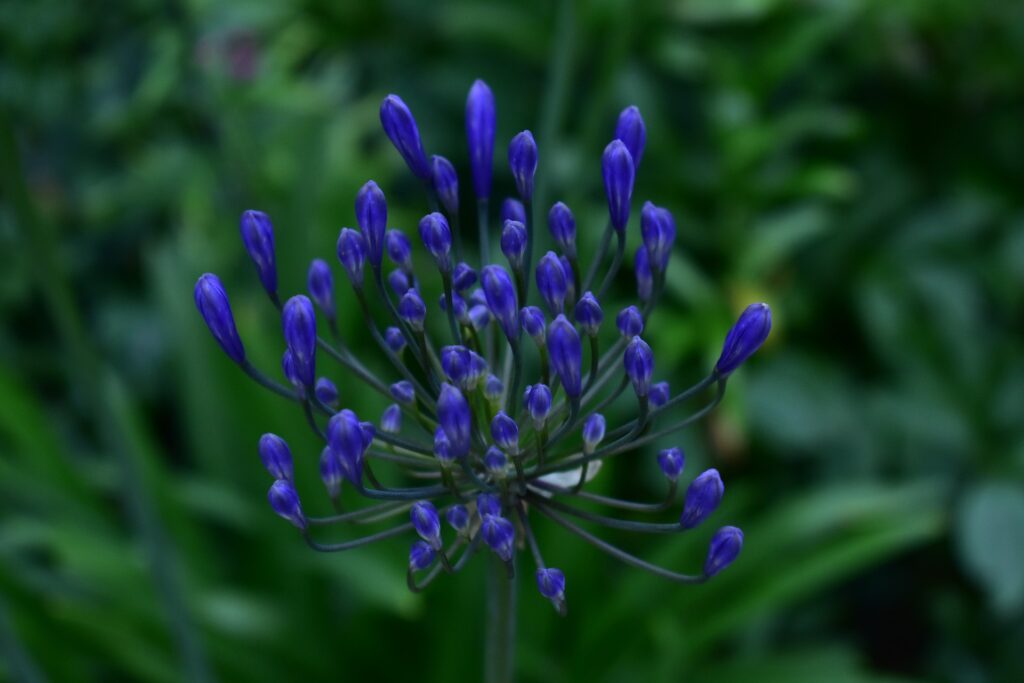
Anemone
Botanical Name: Anemone
Enjoy the amazing hues of blue for three seasons in a row, and make the most of the added bonus that comes from an Anemone flower – it is thought by many cultures to be a symbol of good luck!
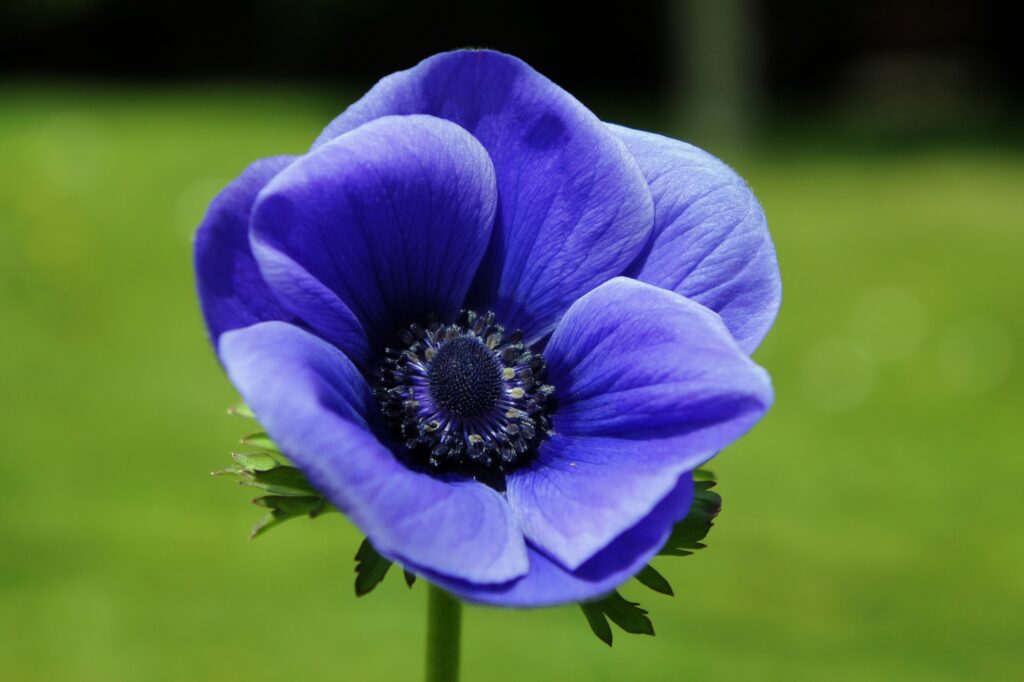
Ipomoea
Botanical Name: Ipomoea
Trumpet-shaped blossoms help to make this flower super identifiable – but you only have a limited window to enjoy the splendor, as these blooms close their petals at around noon!
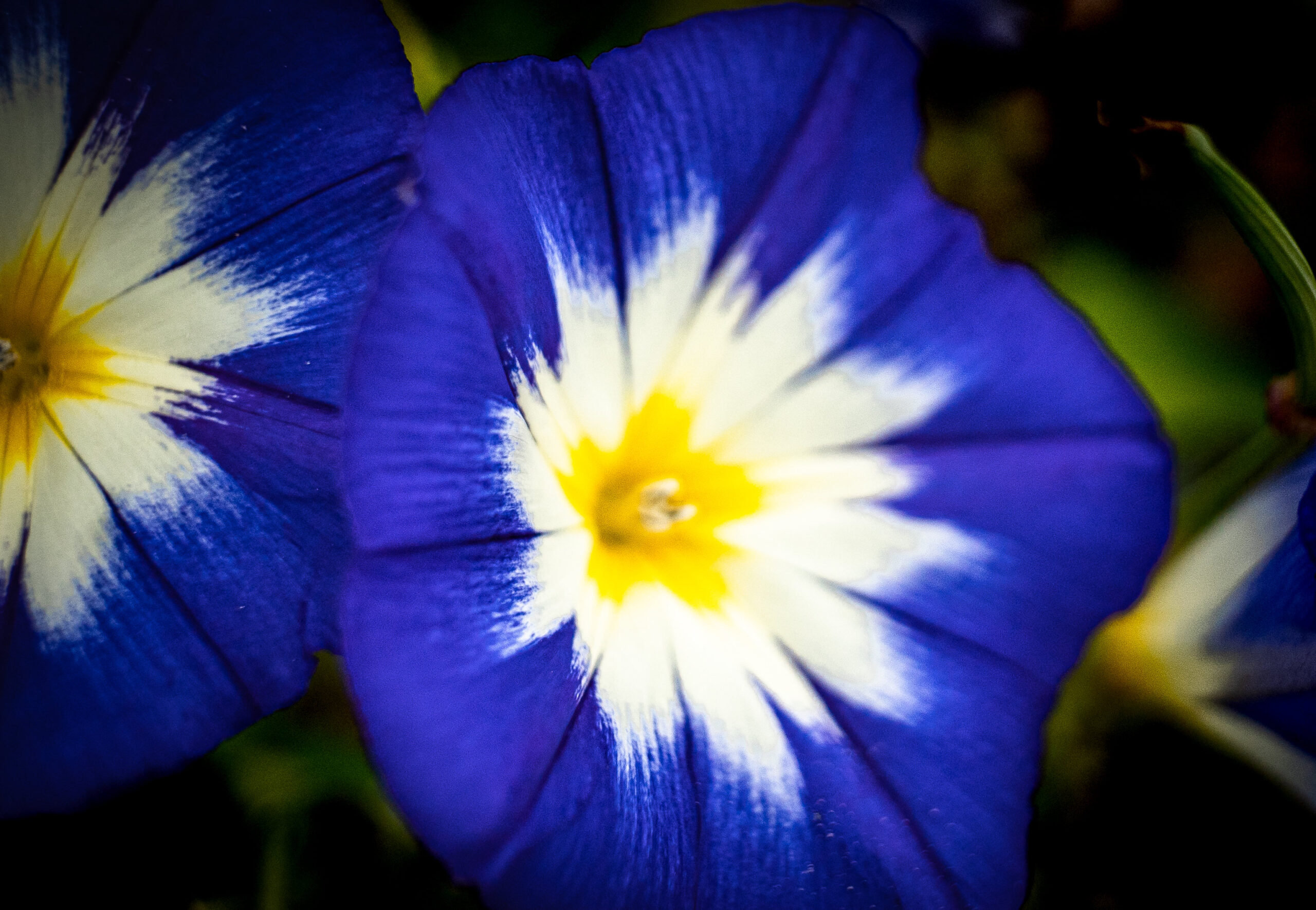
Final Thoughts
Adding a sea of navy blue flowers to your garden or outdoor space is a great way to add visual interest and differentiation to your overall aesthetic, and has the added bonus of usually being super appealing to birds, bees, and butterflies.
This is a great chance to do your part for nature and increase biodiversity.
There is always more to learn, however, so don’t forget to continue your education and discover an even greater variety of flowers in all colors and types!
We hope you enjoyed reading about navy blue flowers, here are other articles that you can learn from:
Dahlias: Key Steps and Tips on Growing Dahlias In Pots




